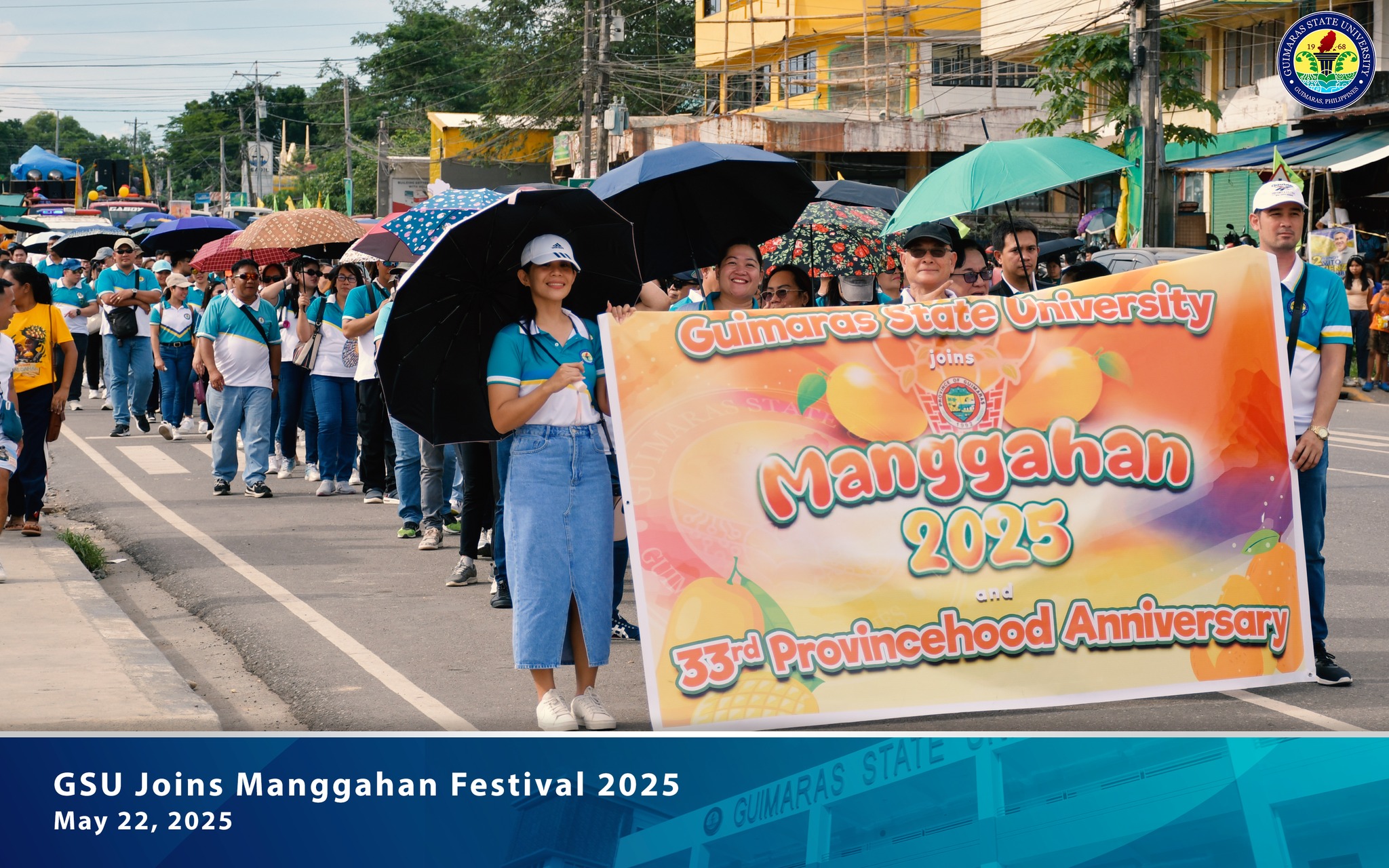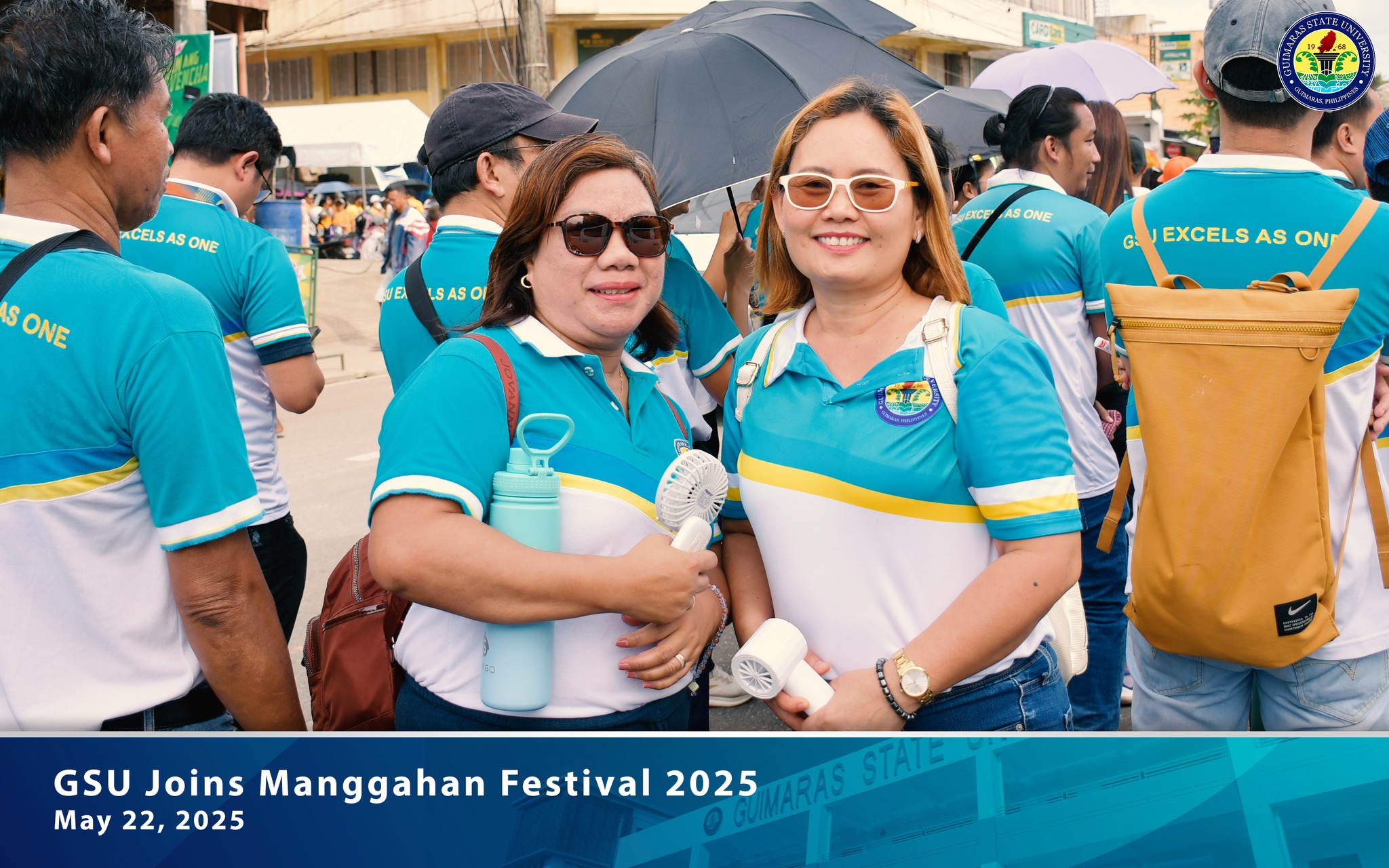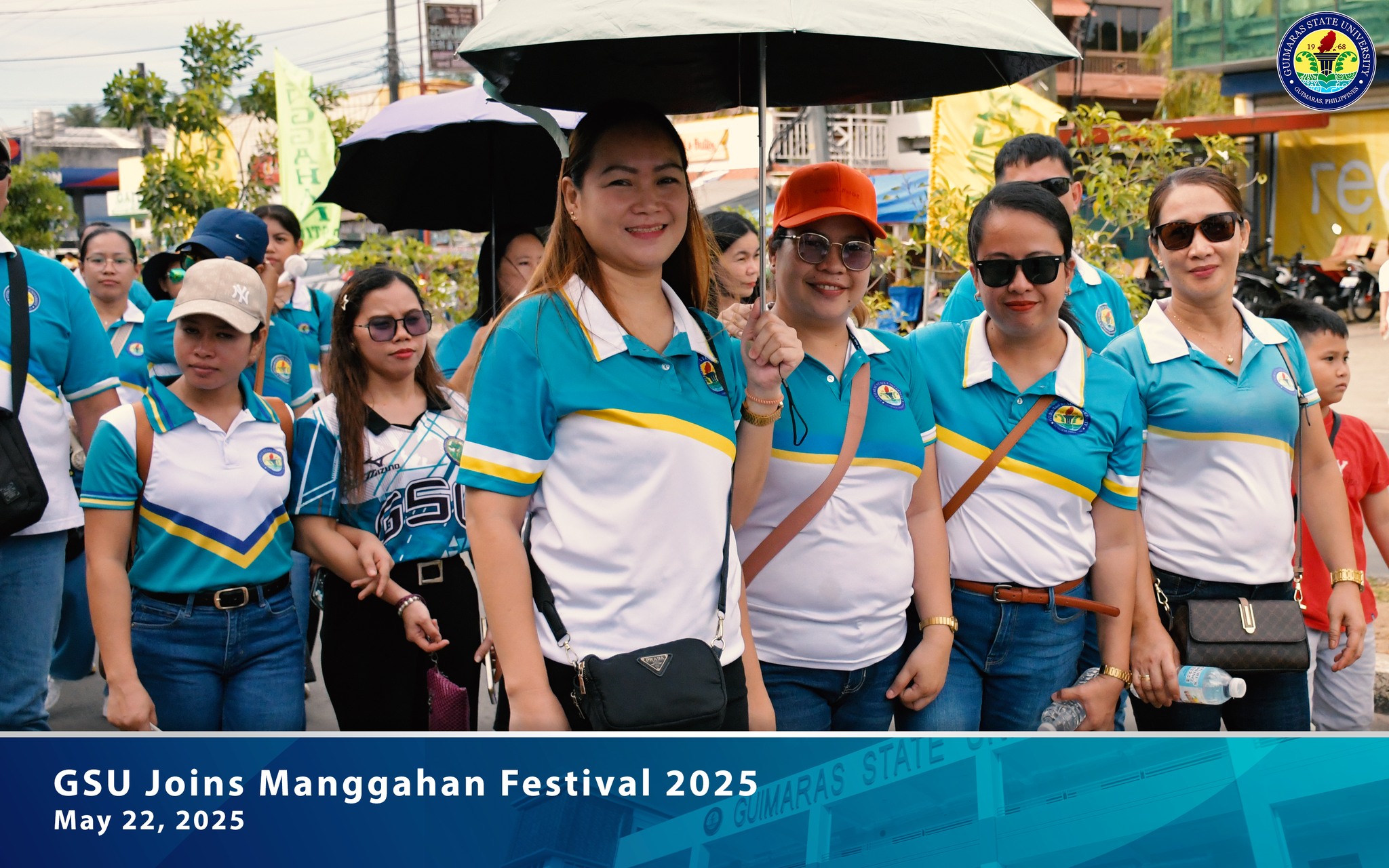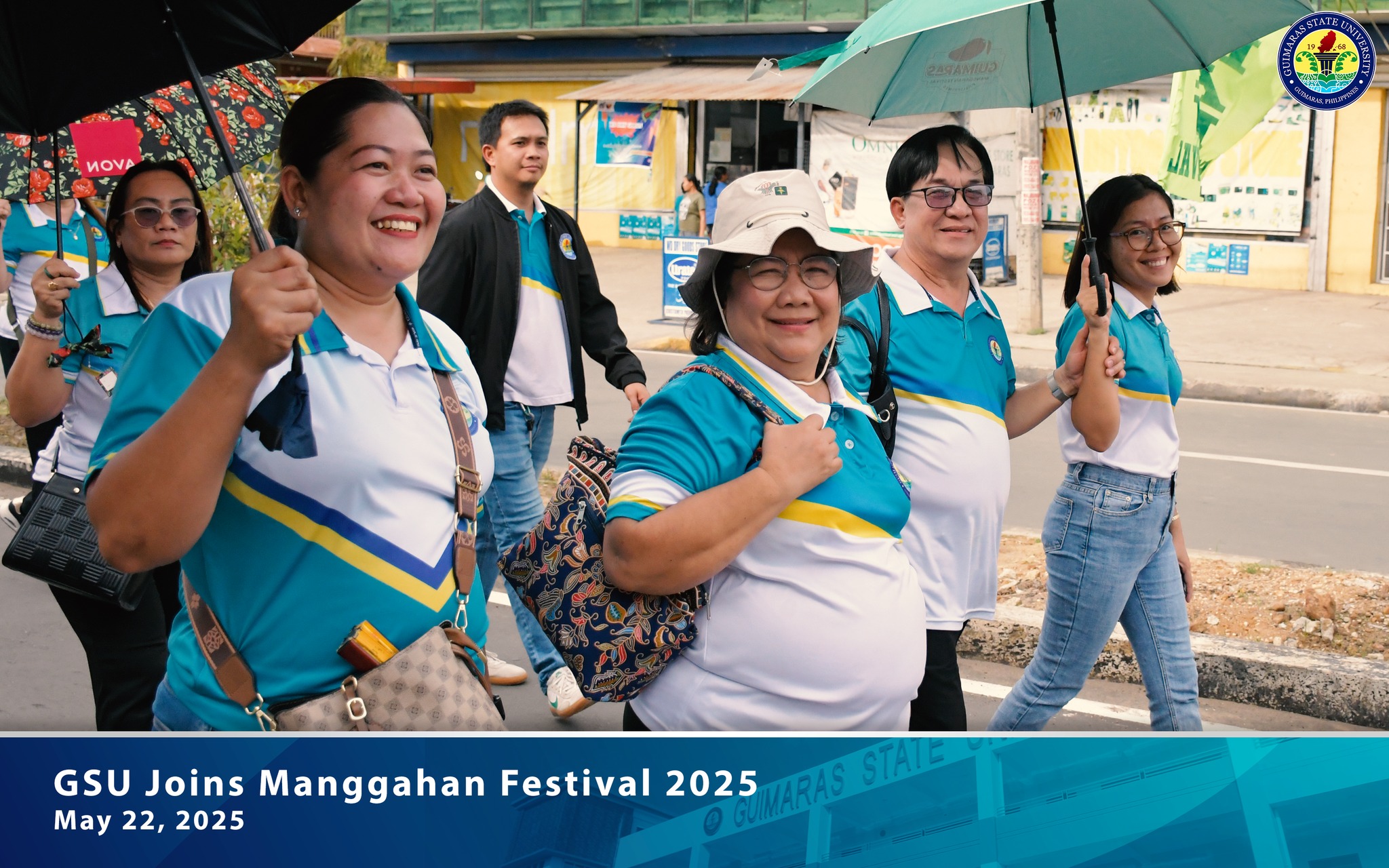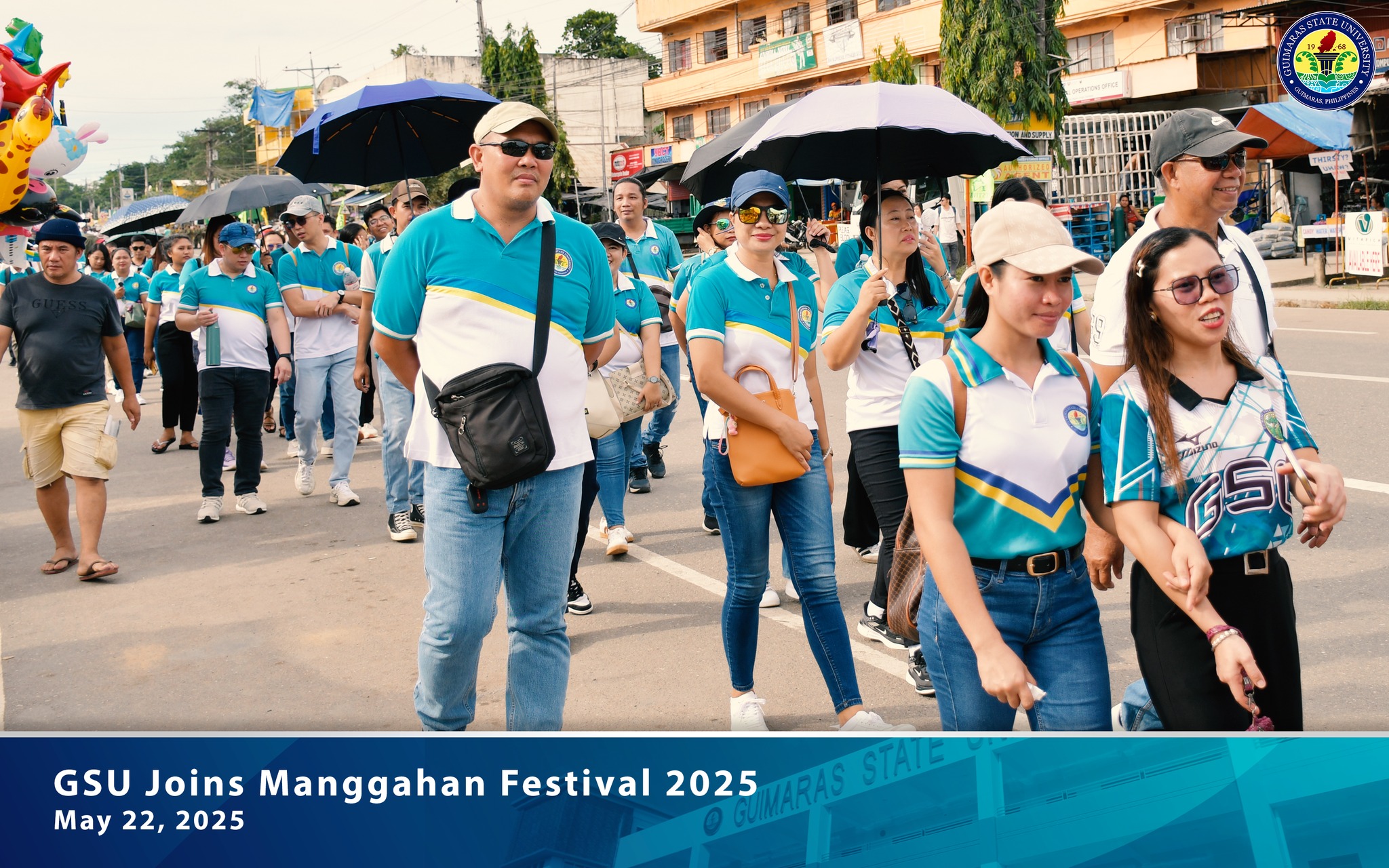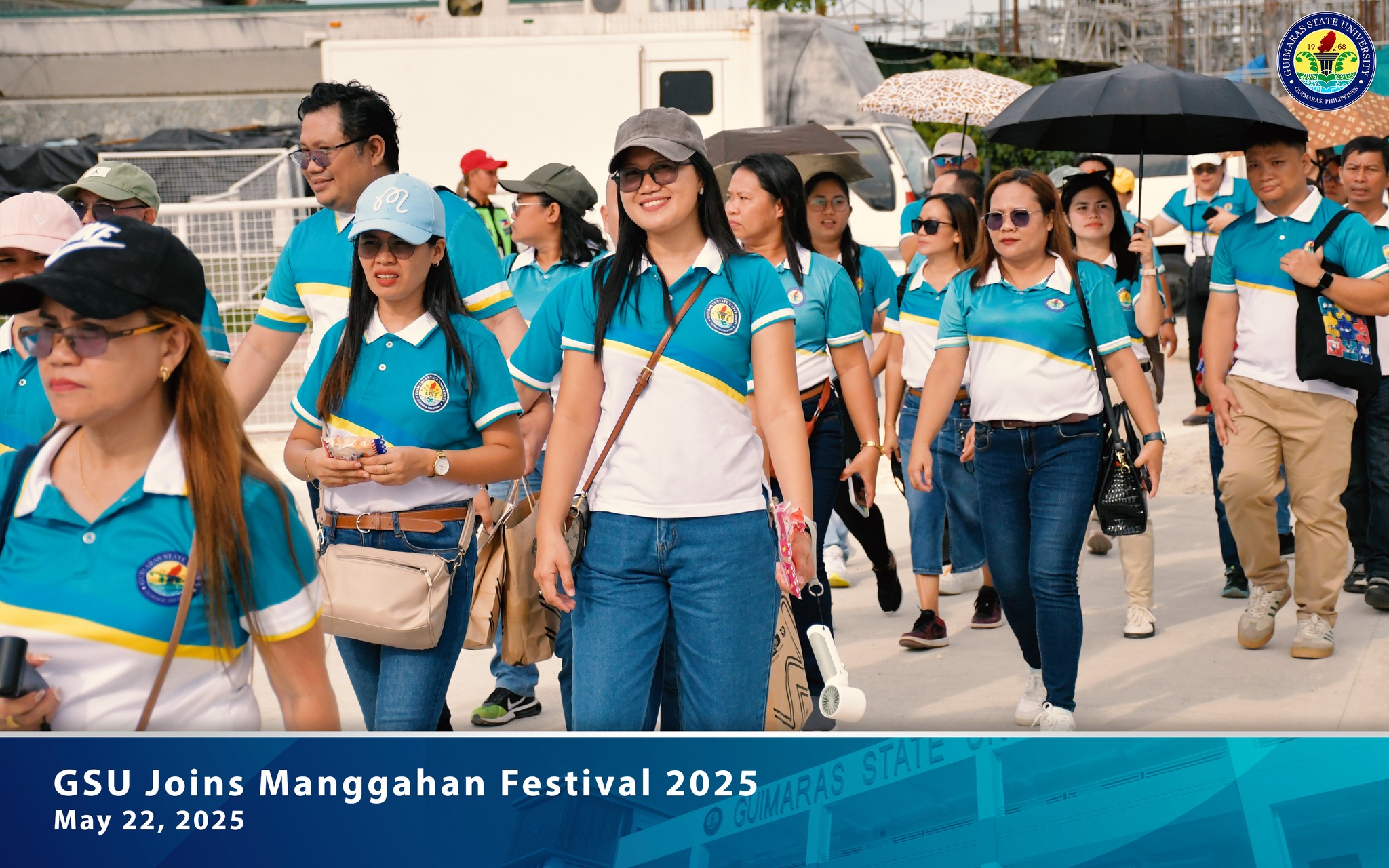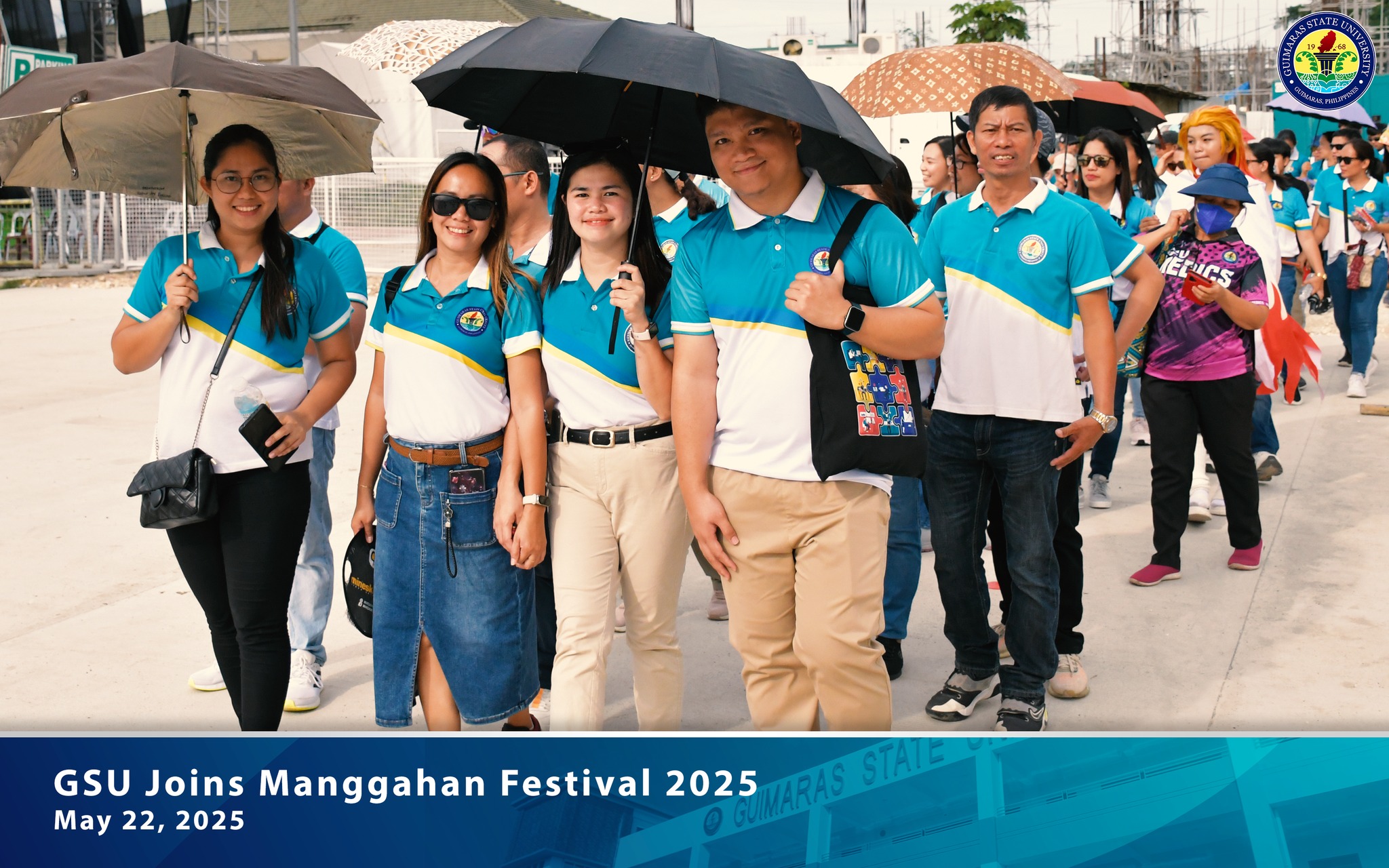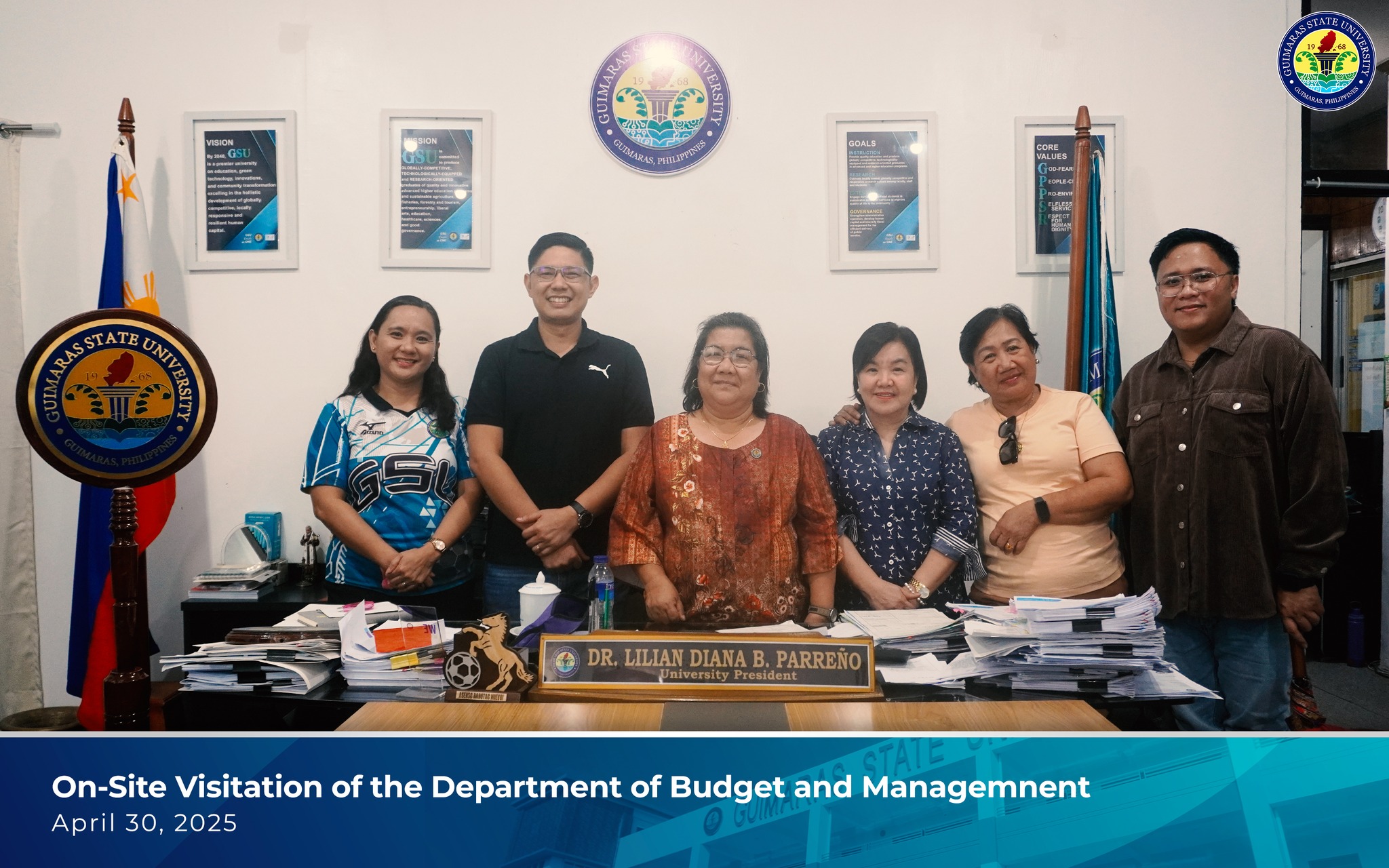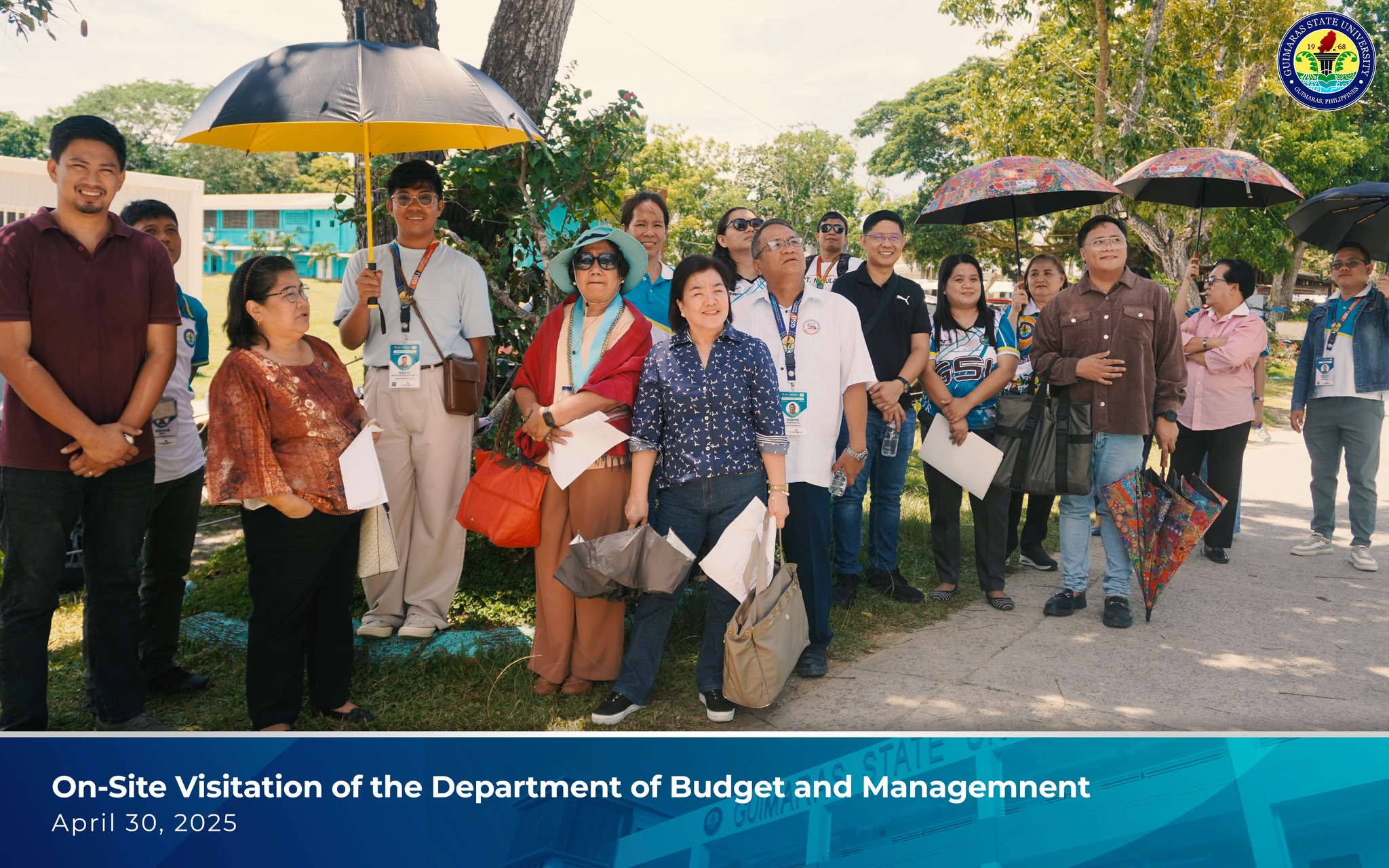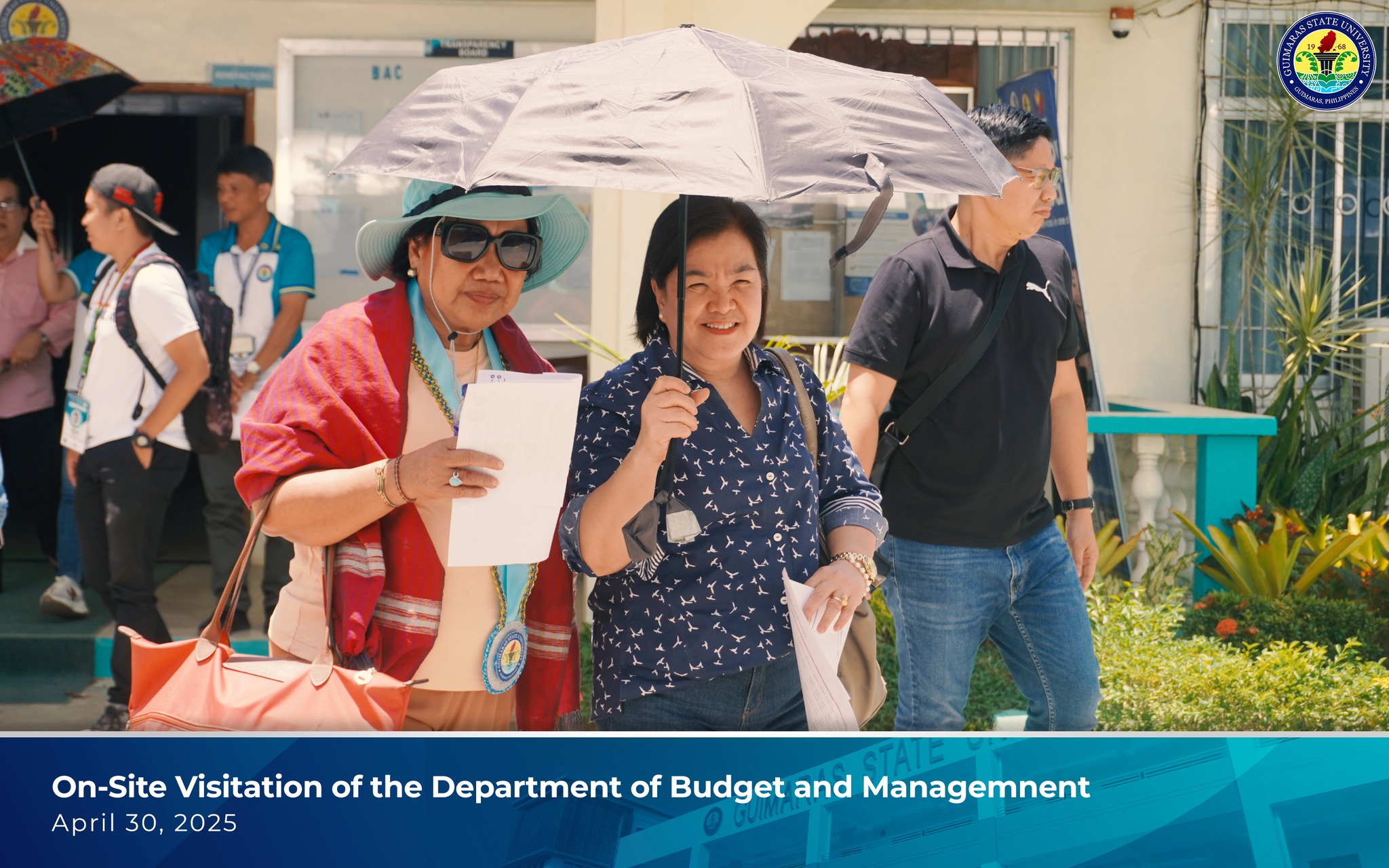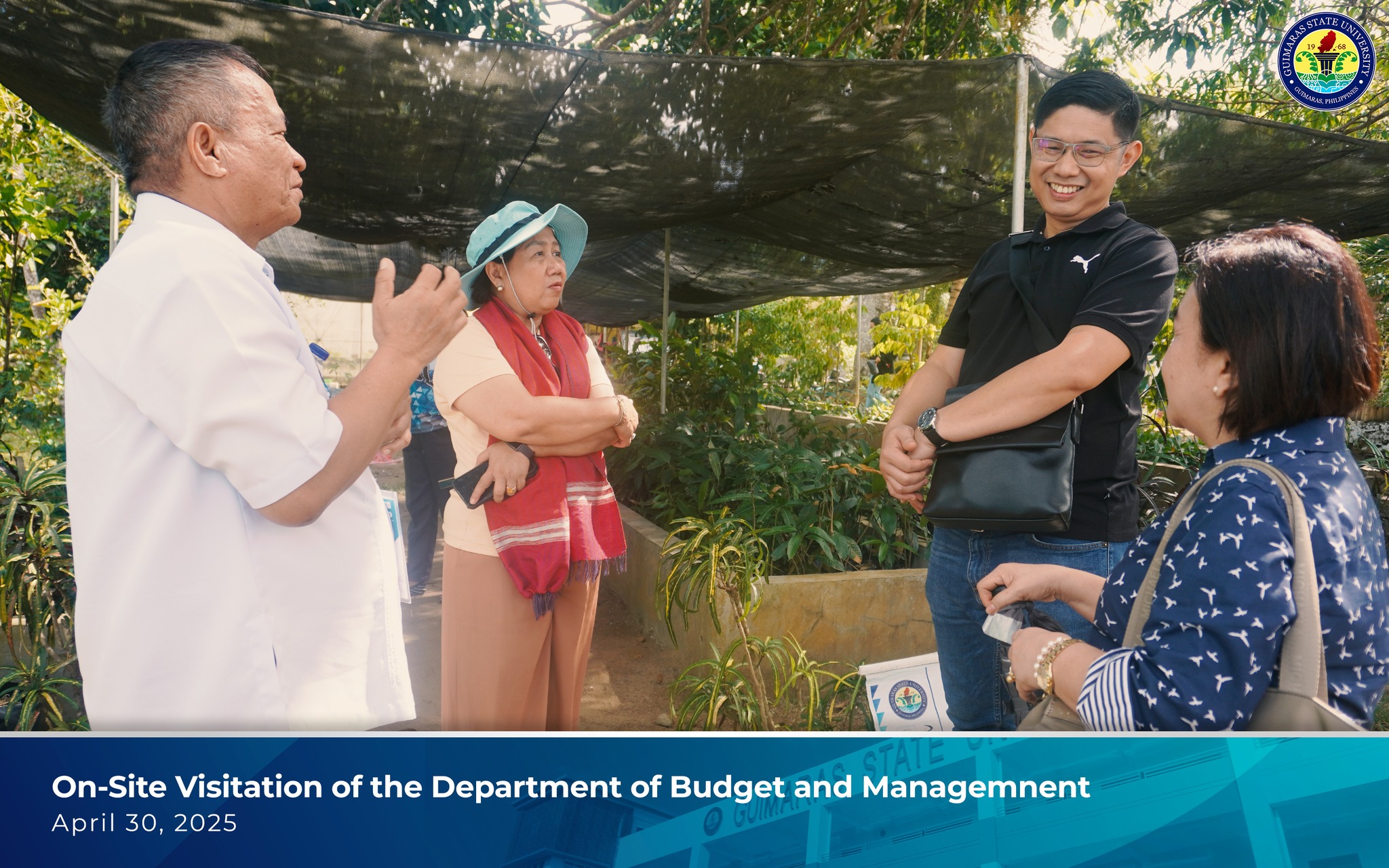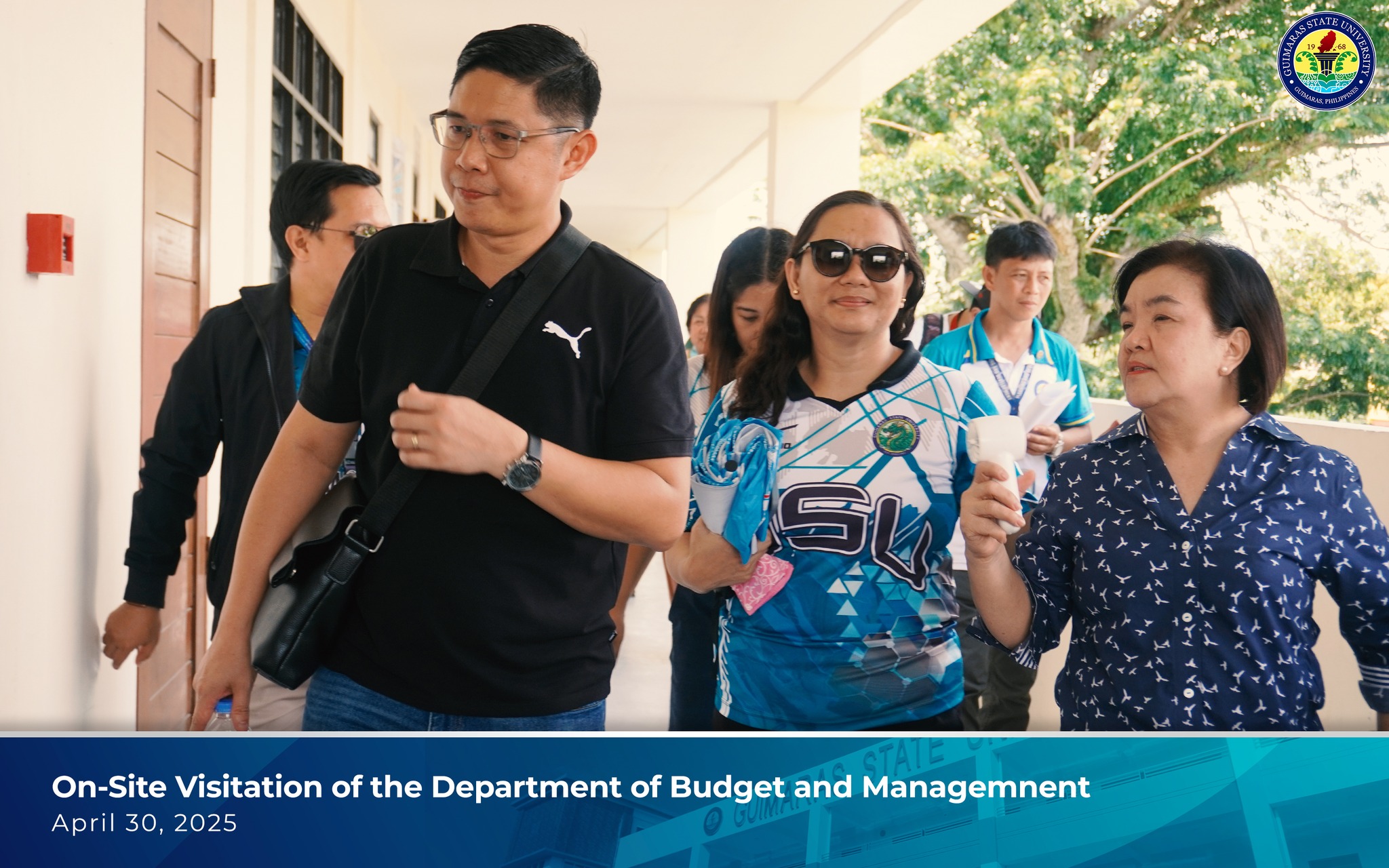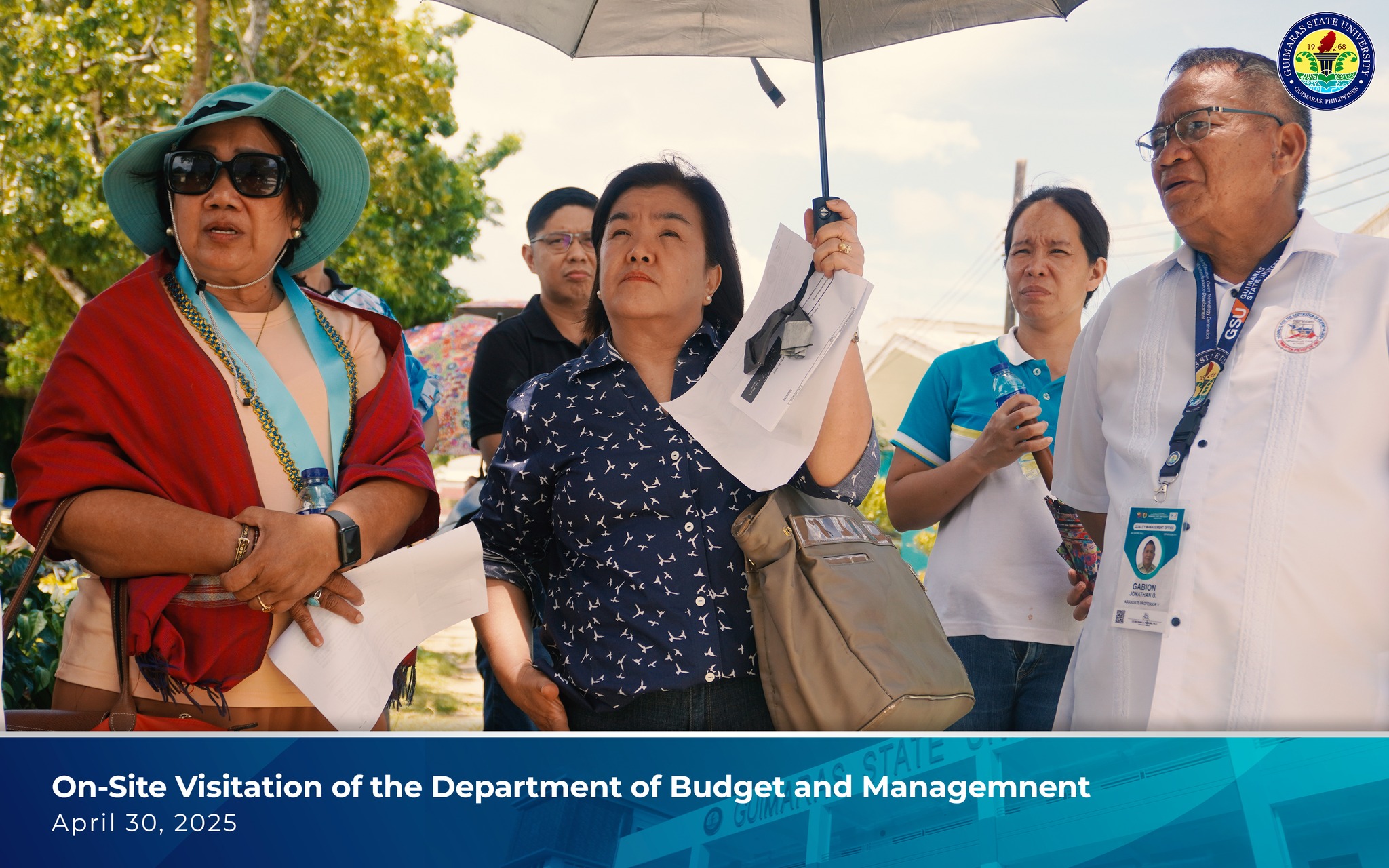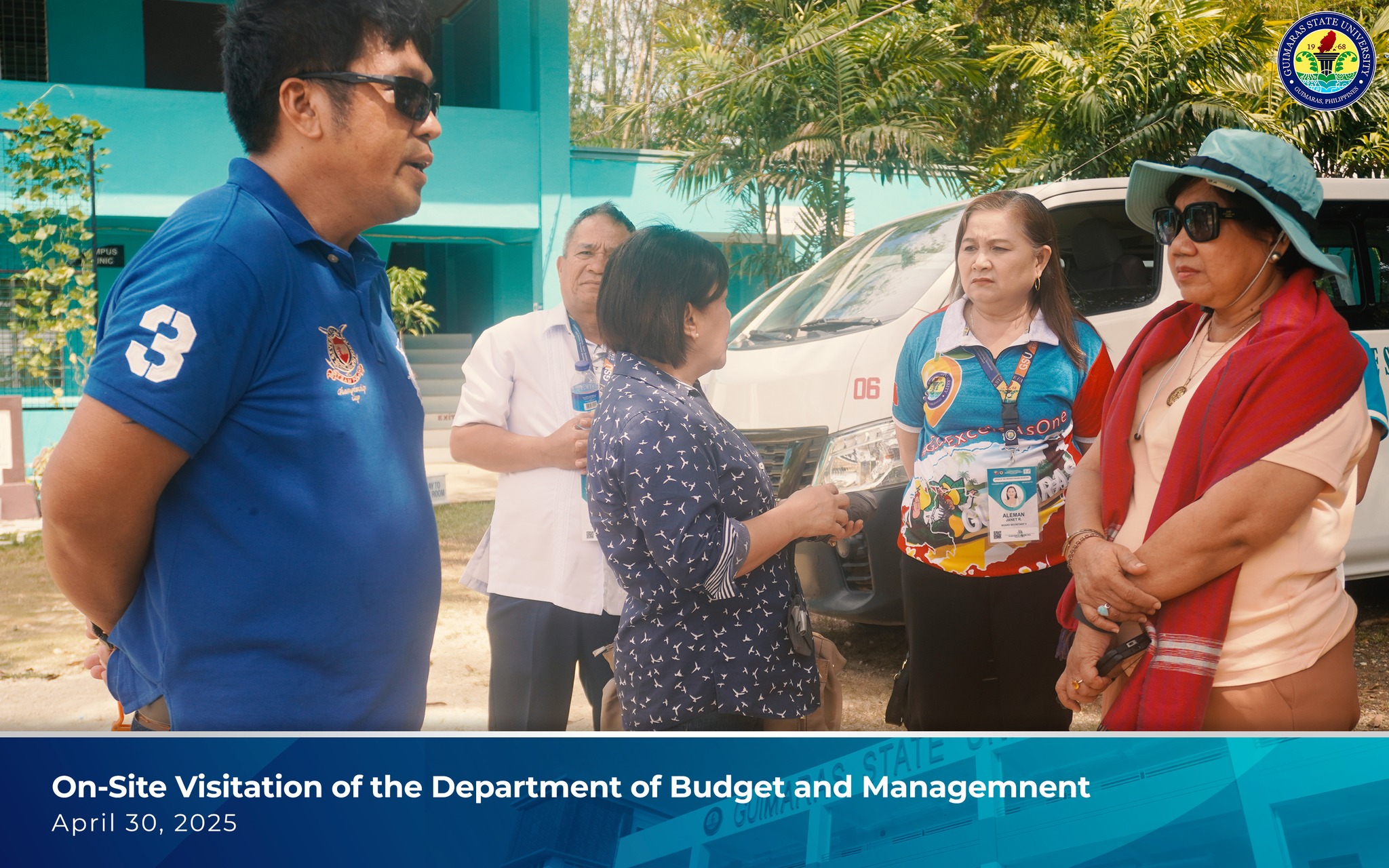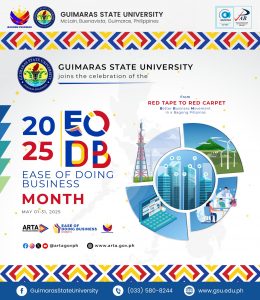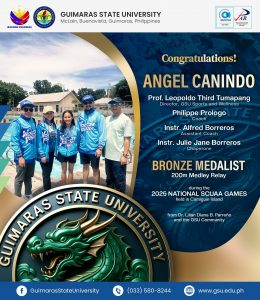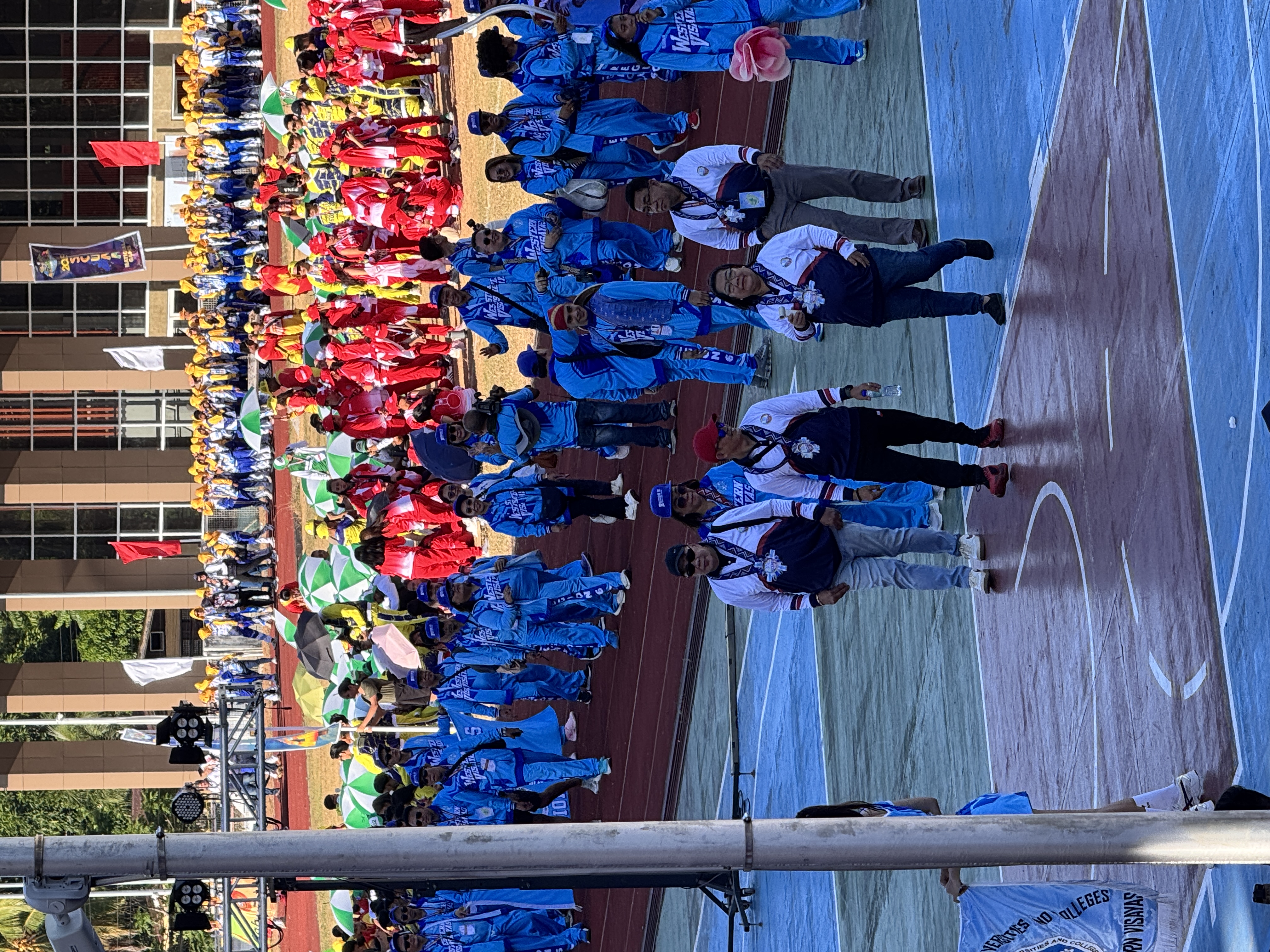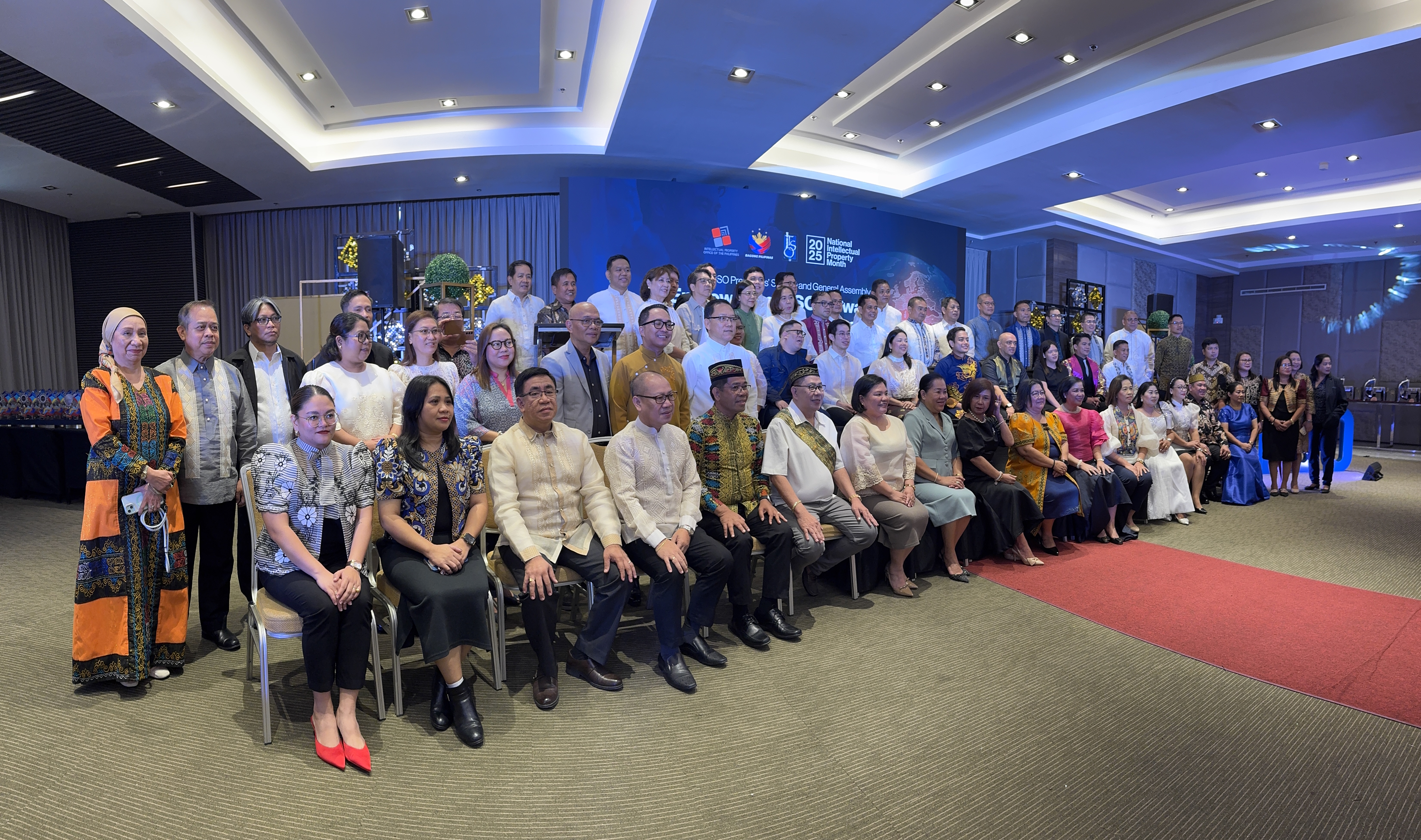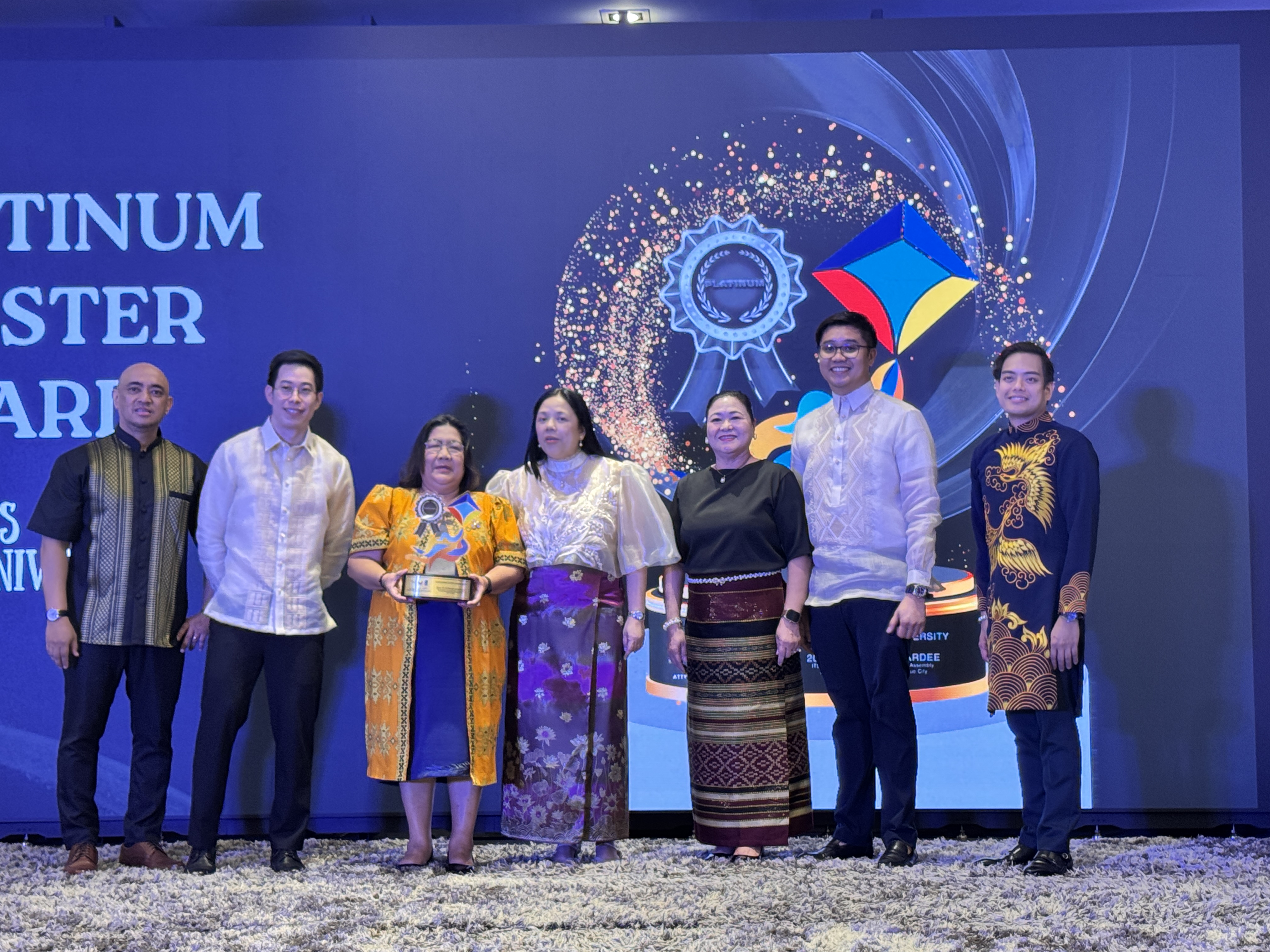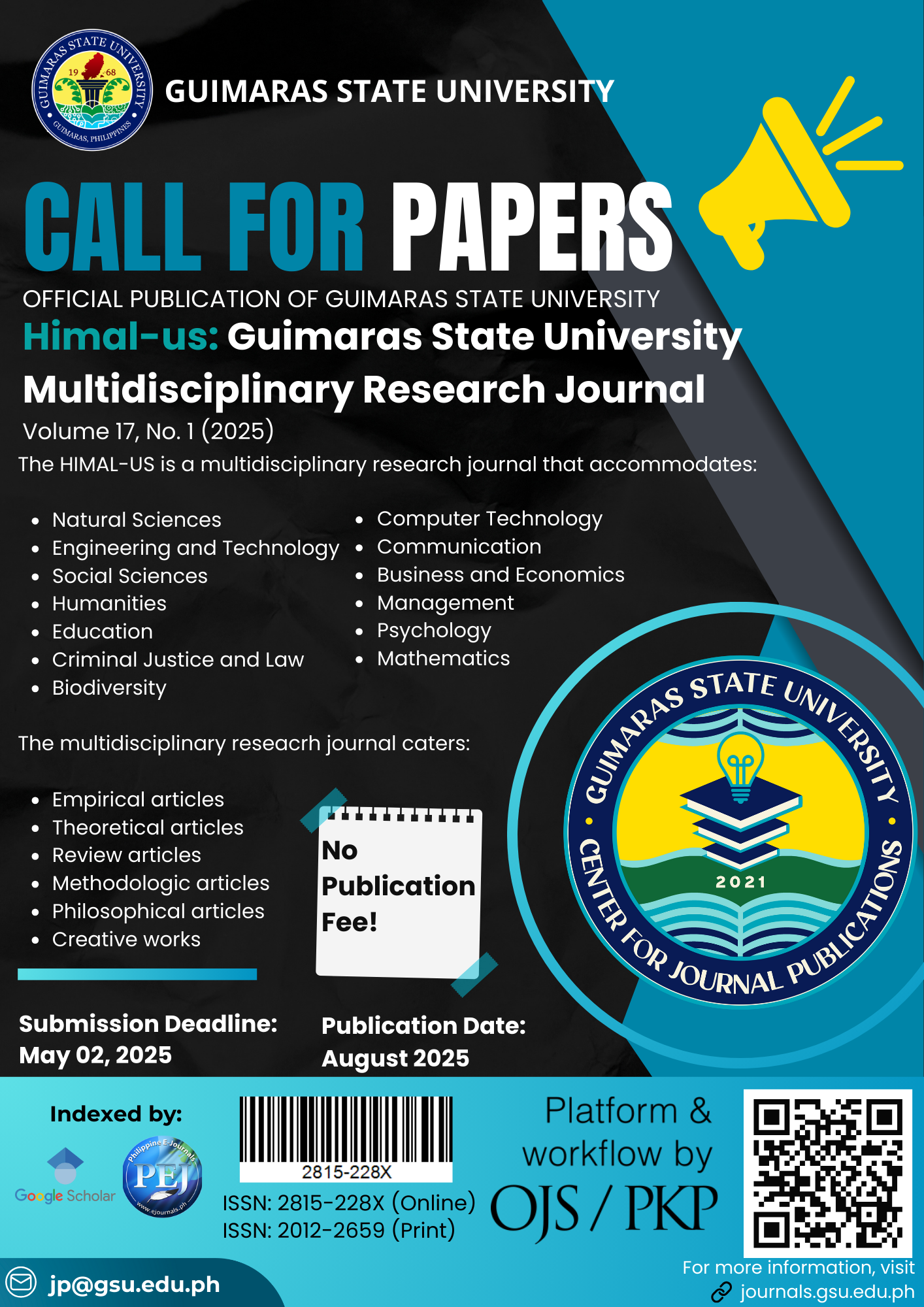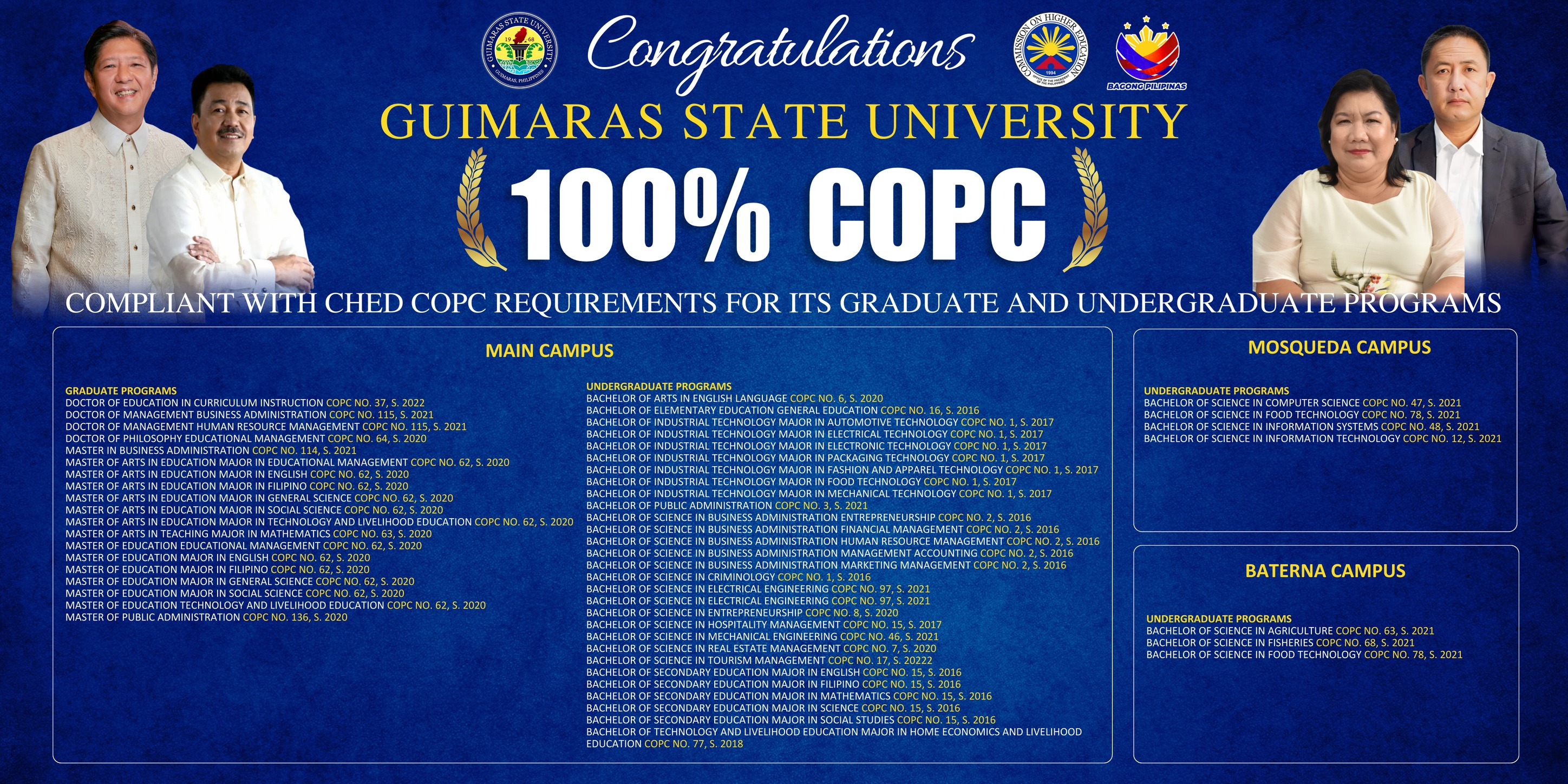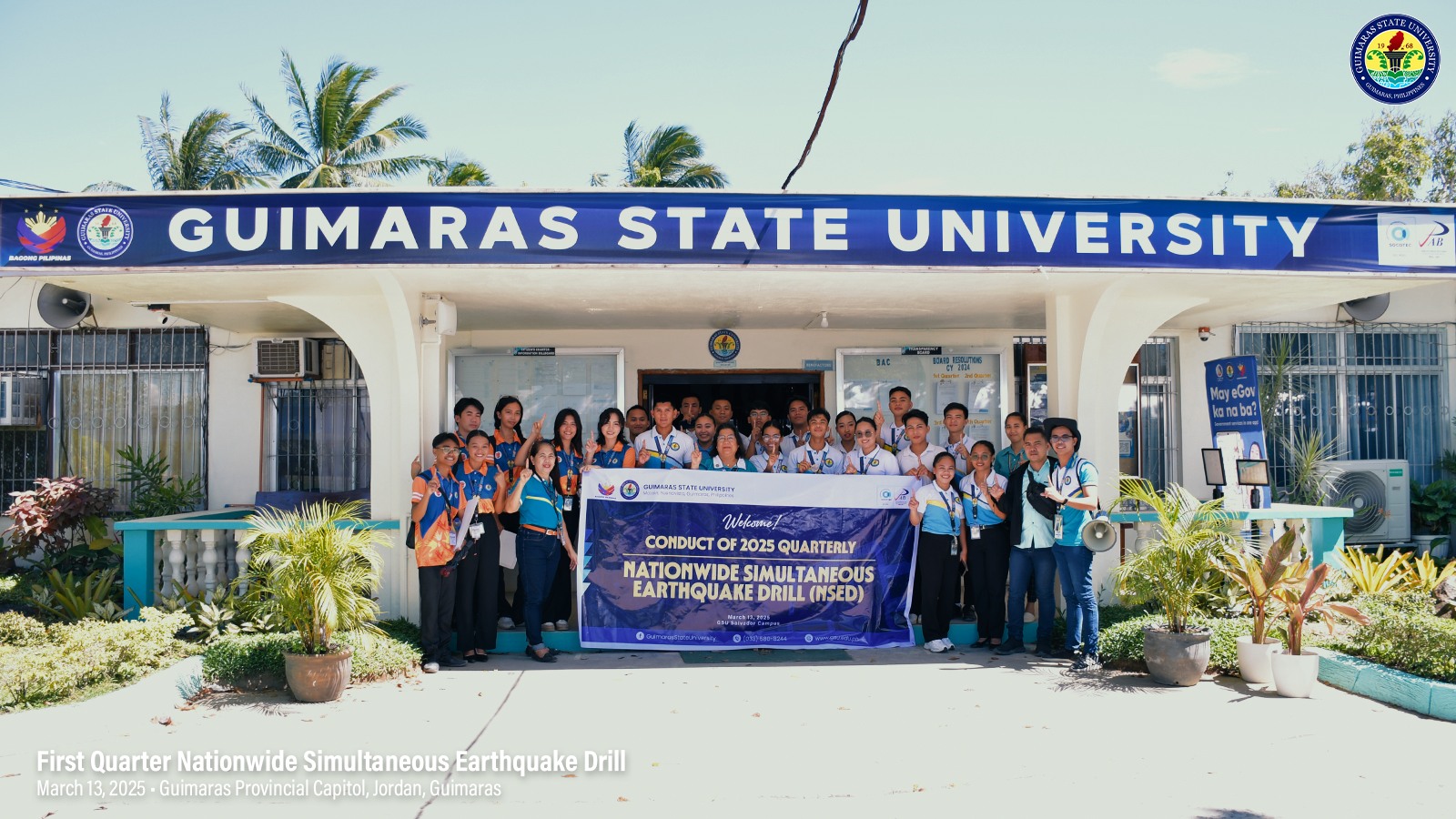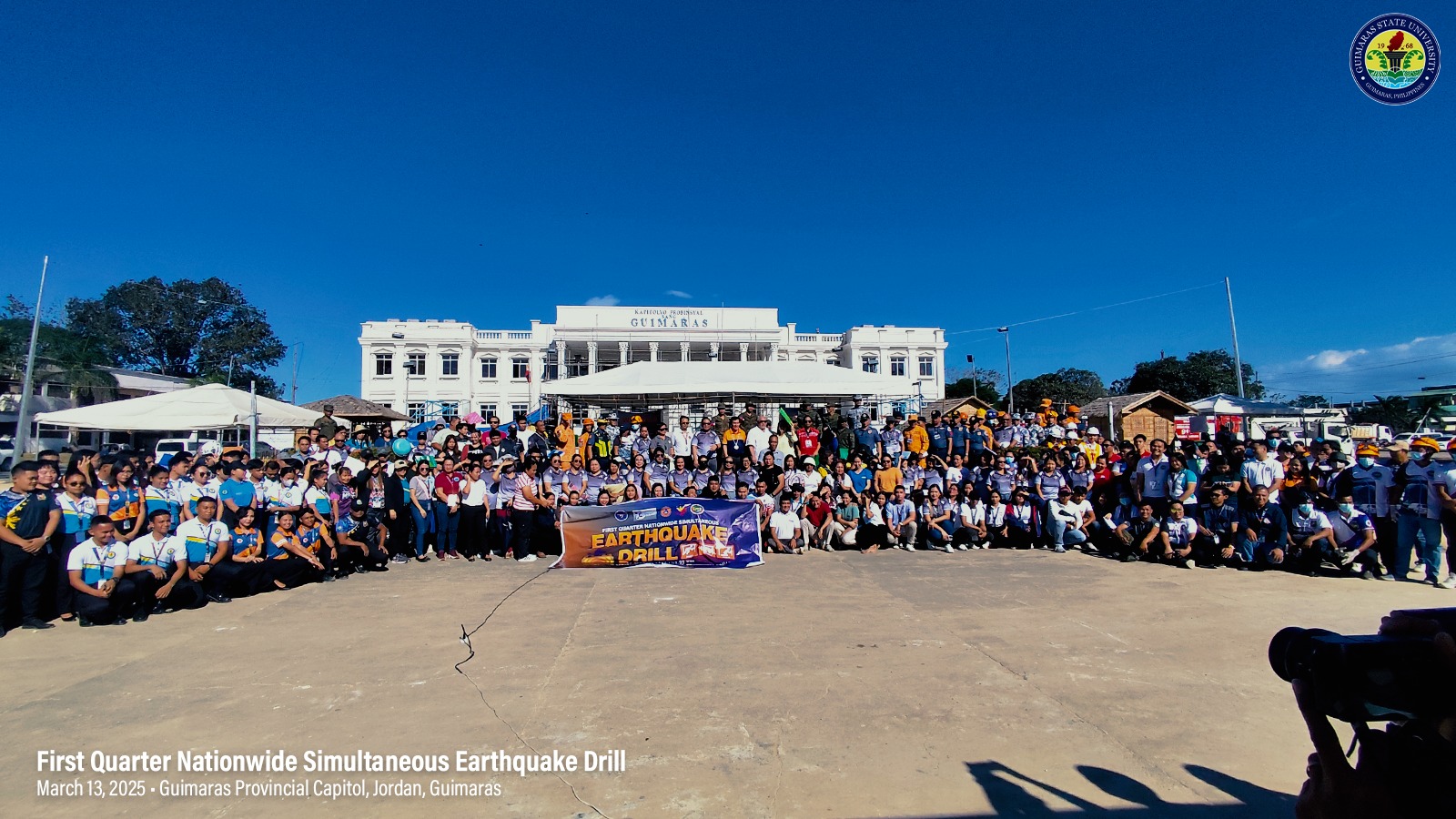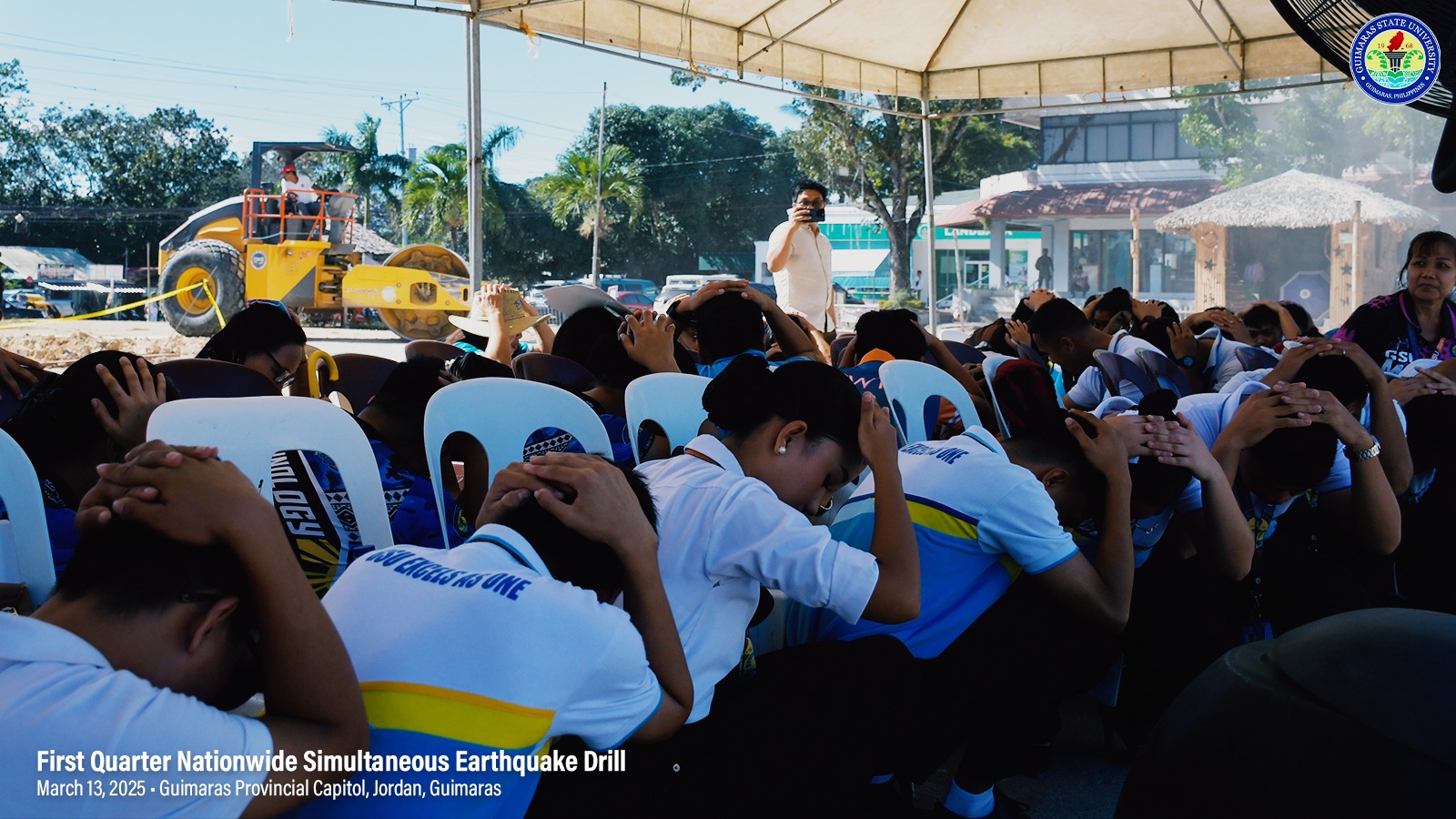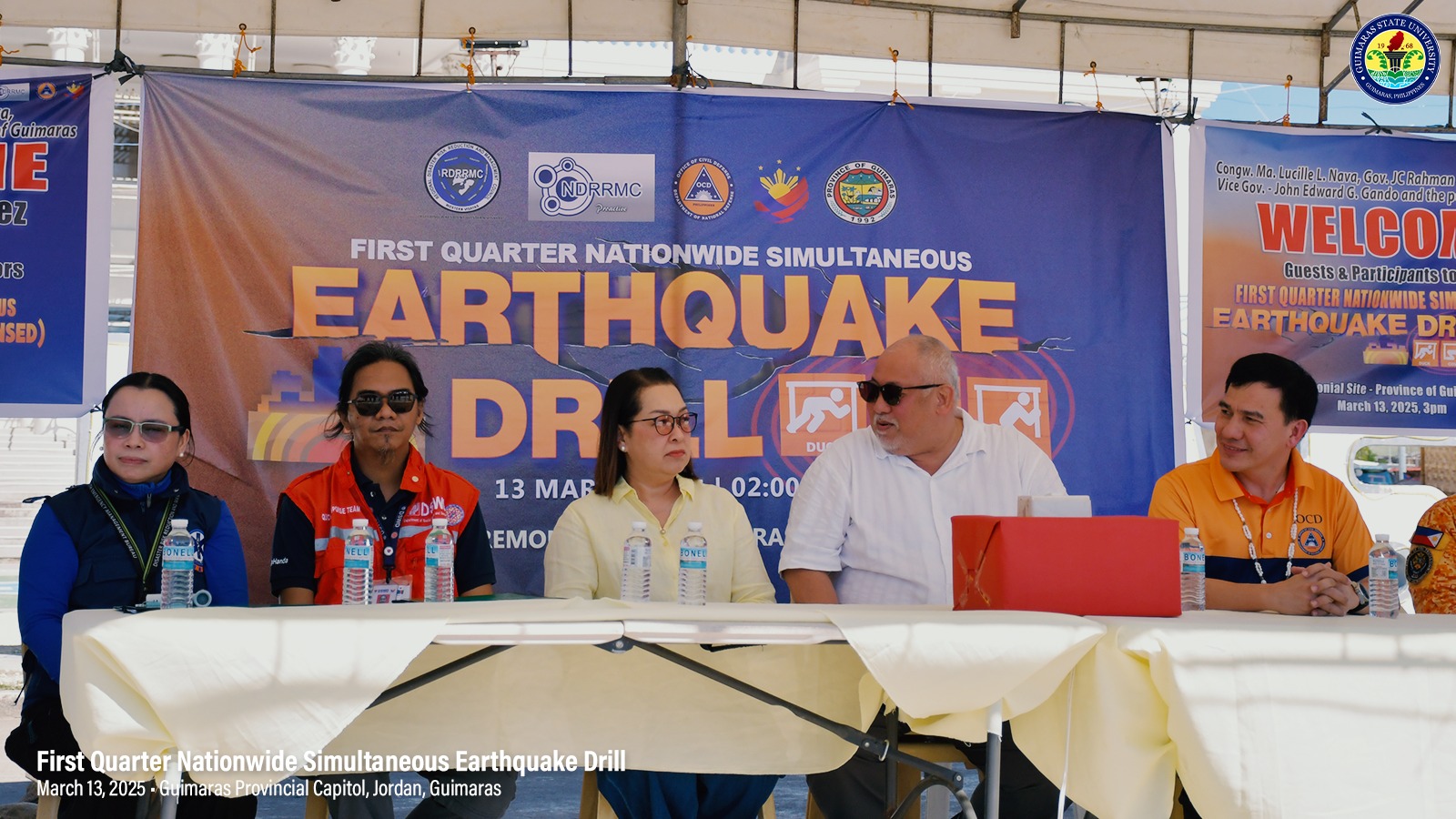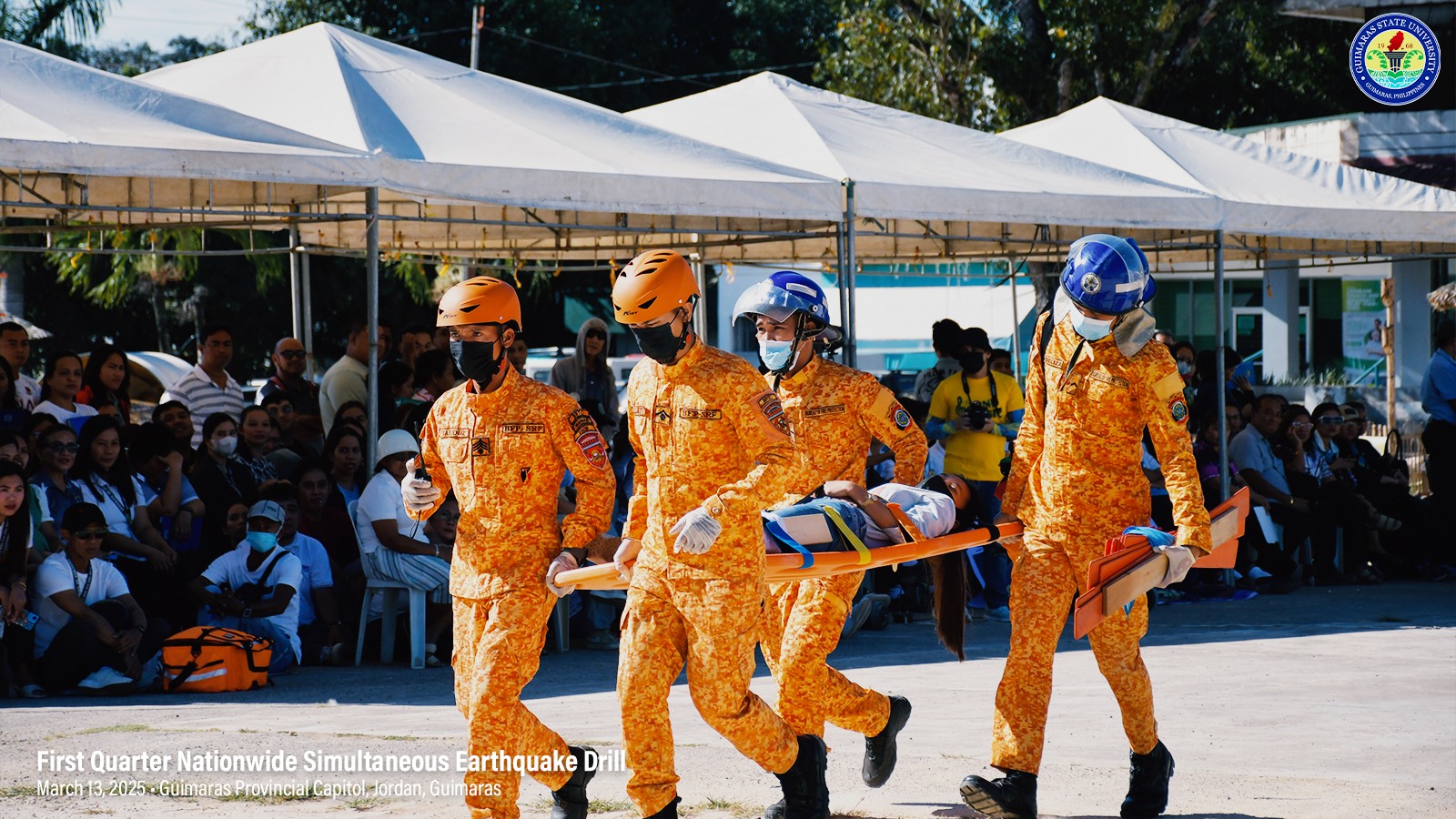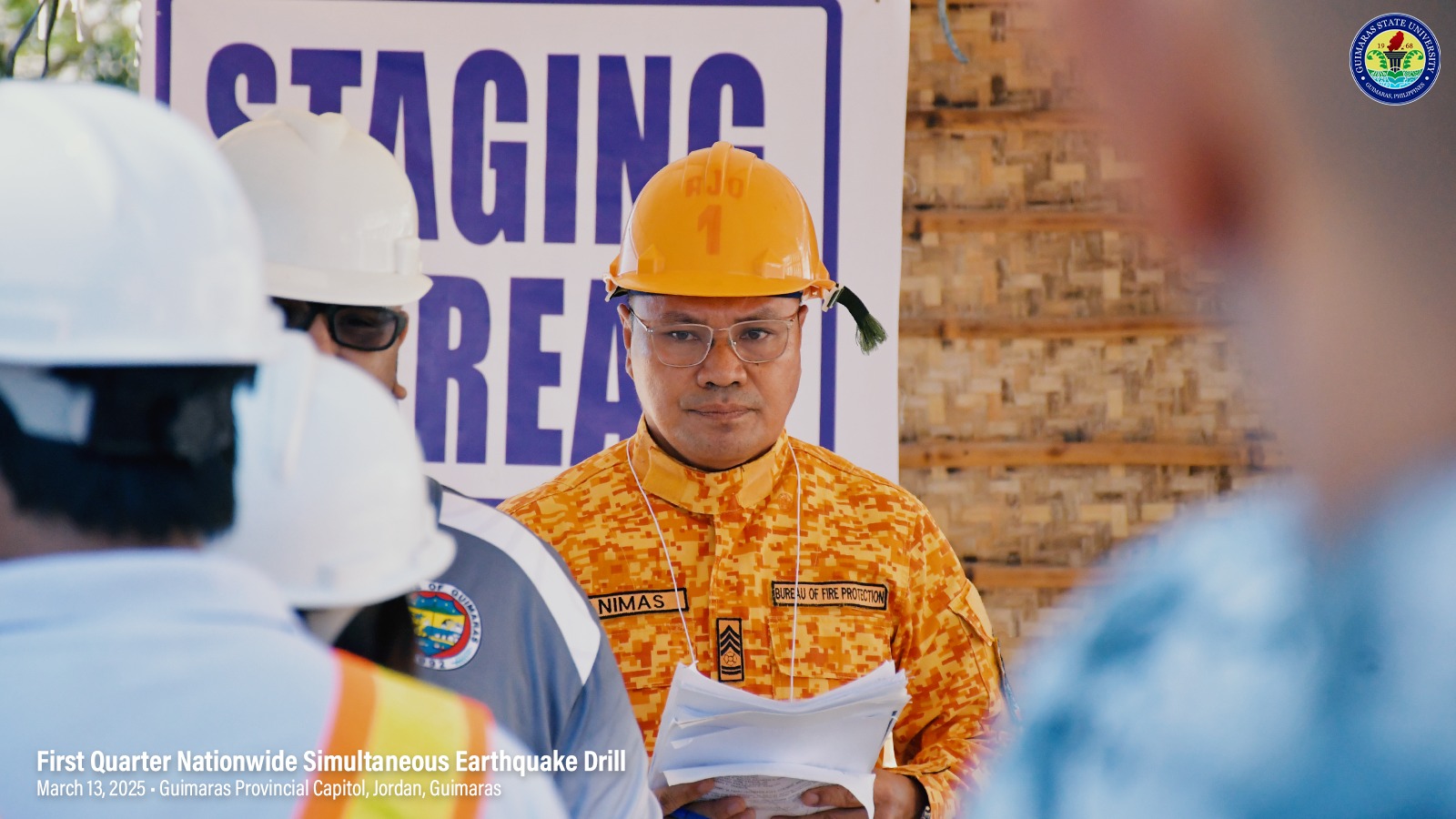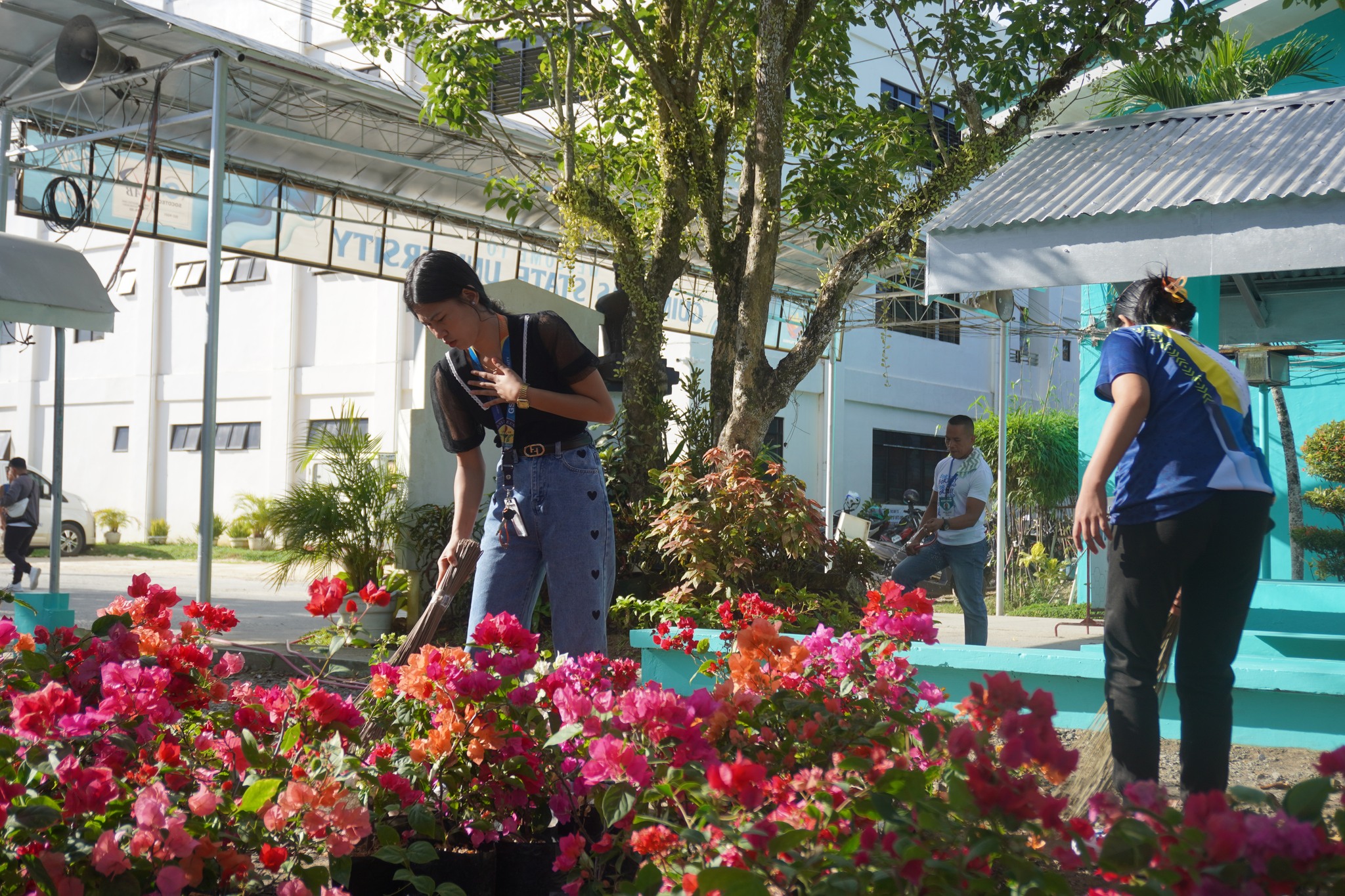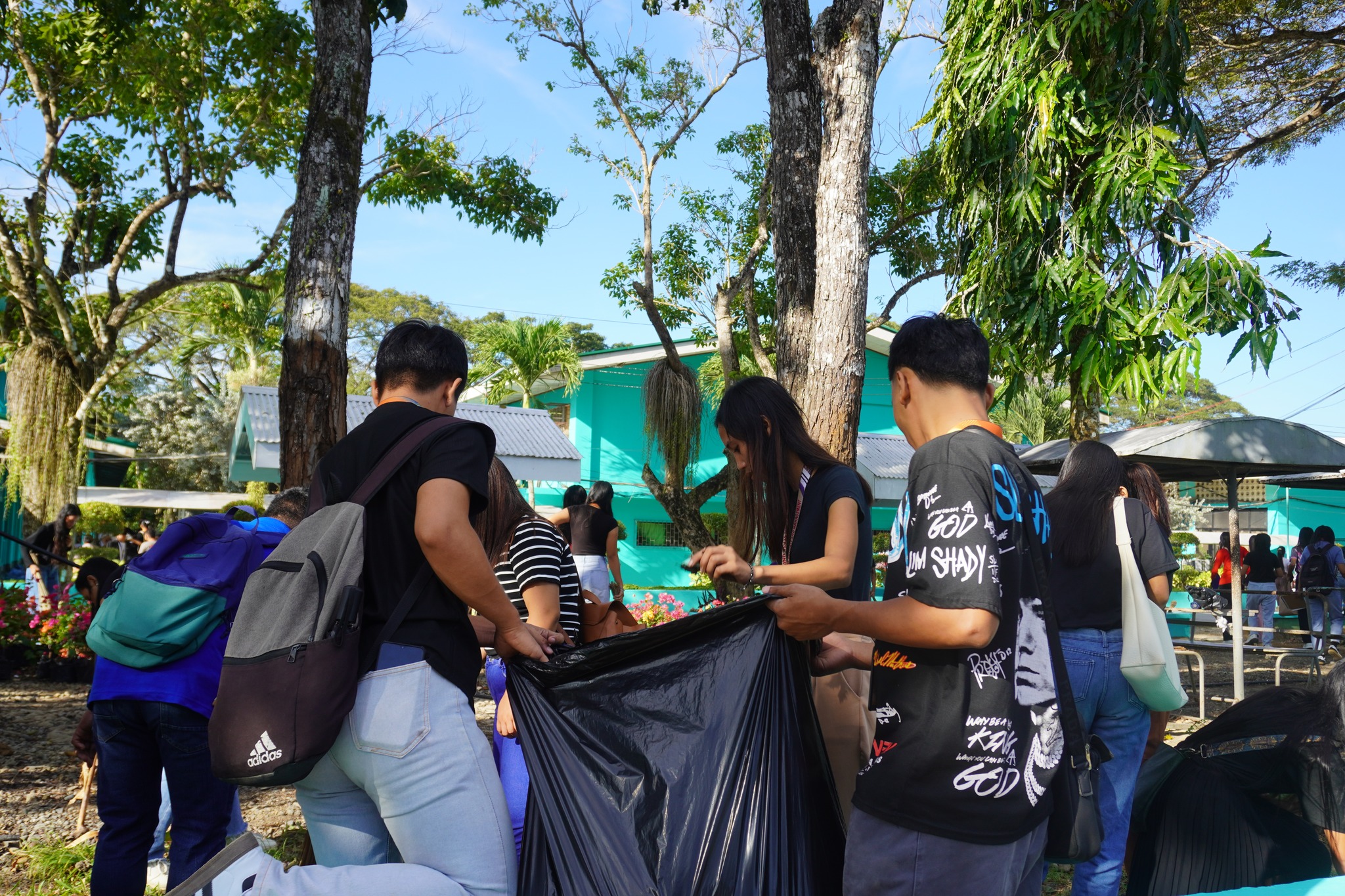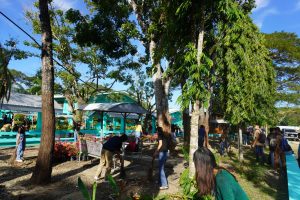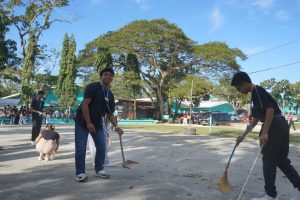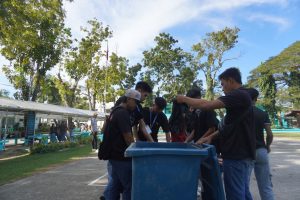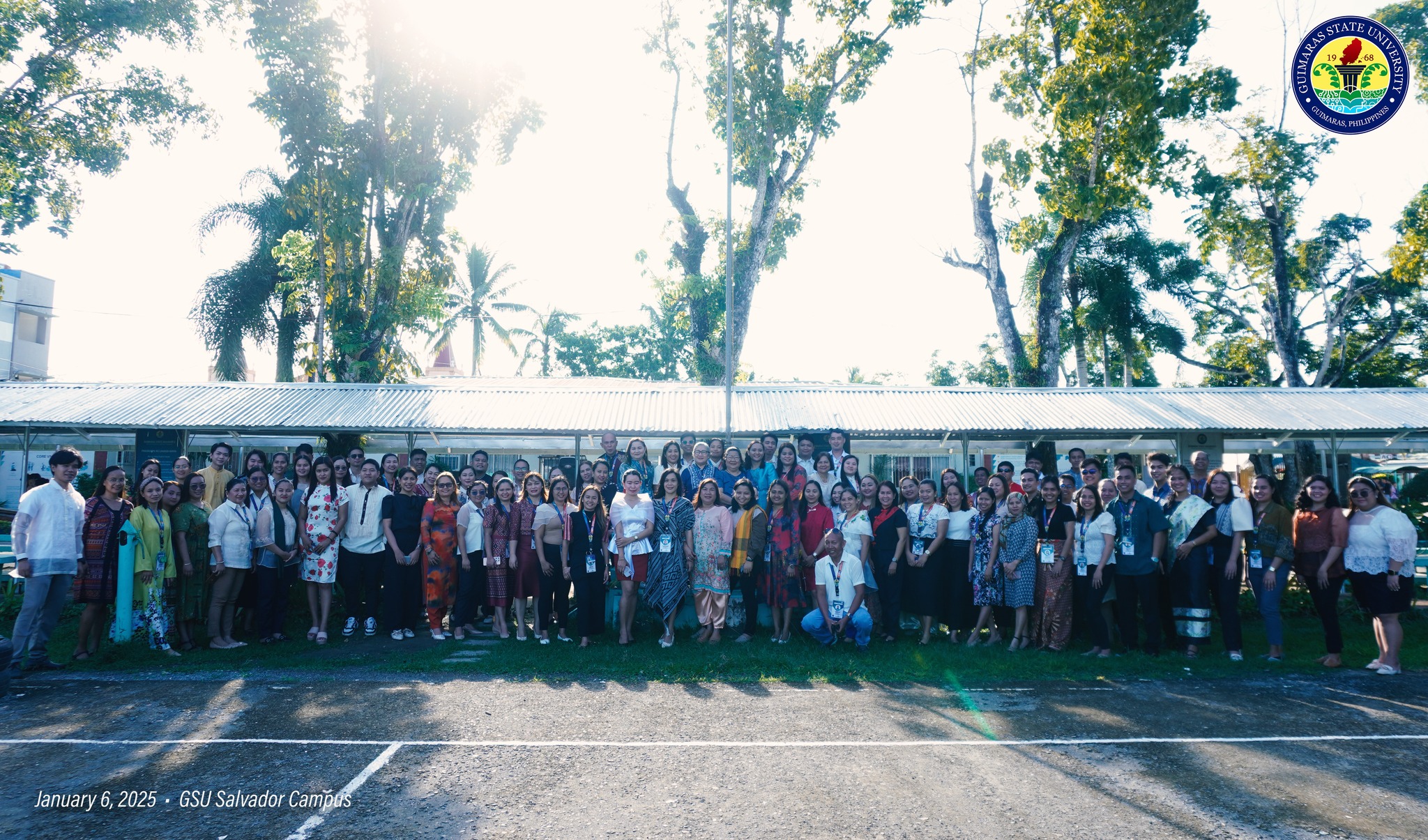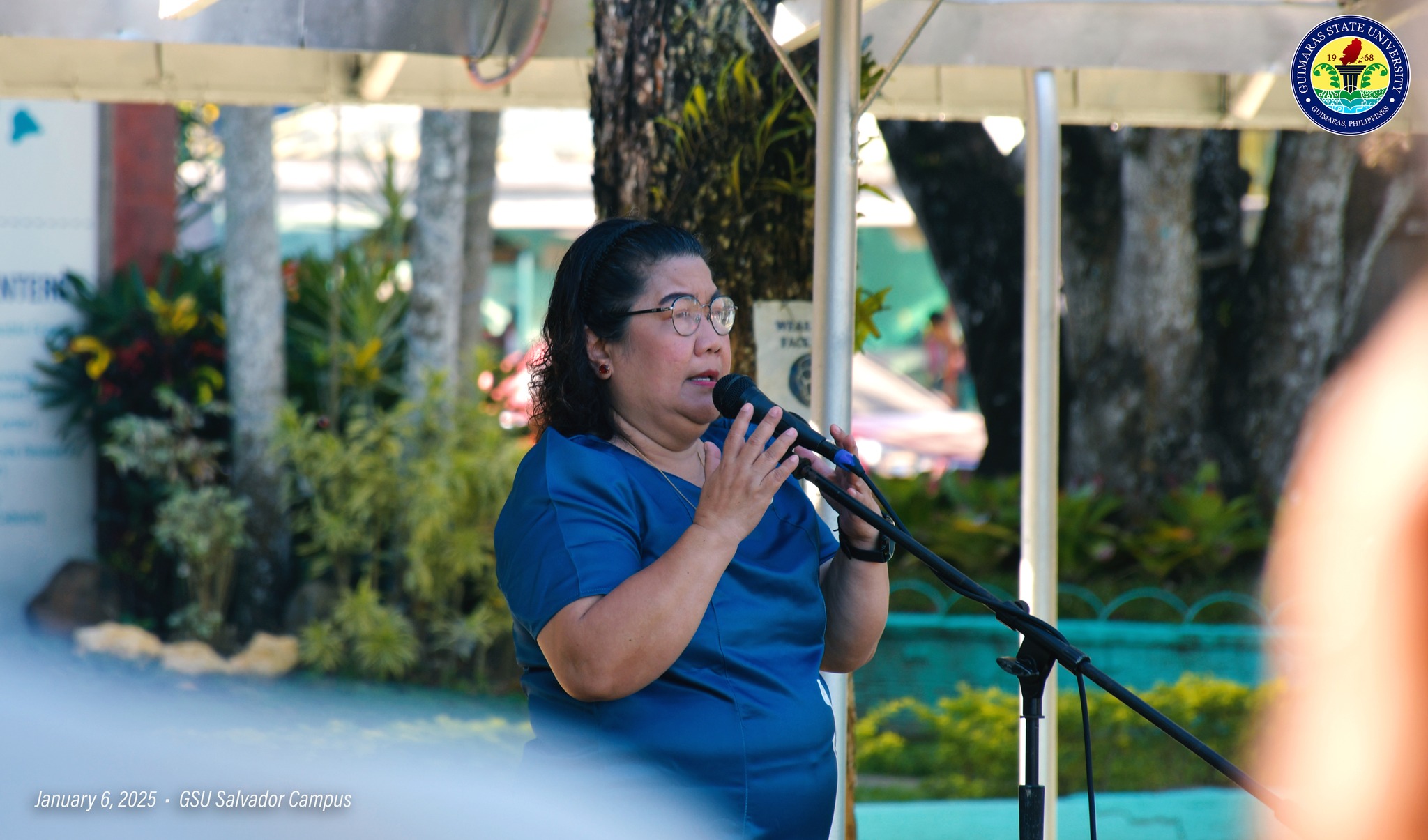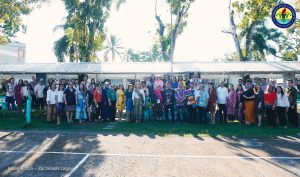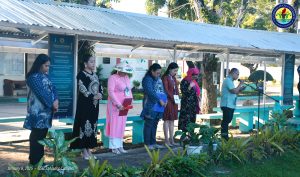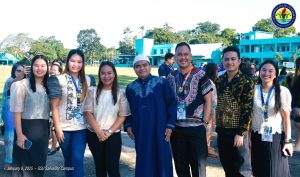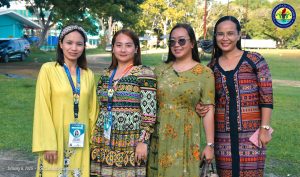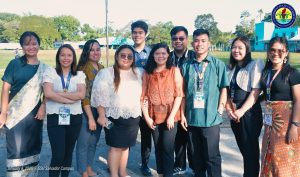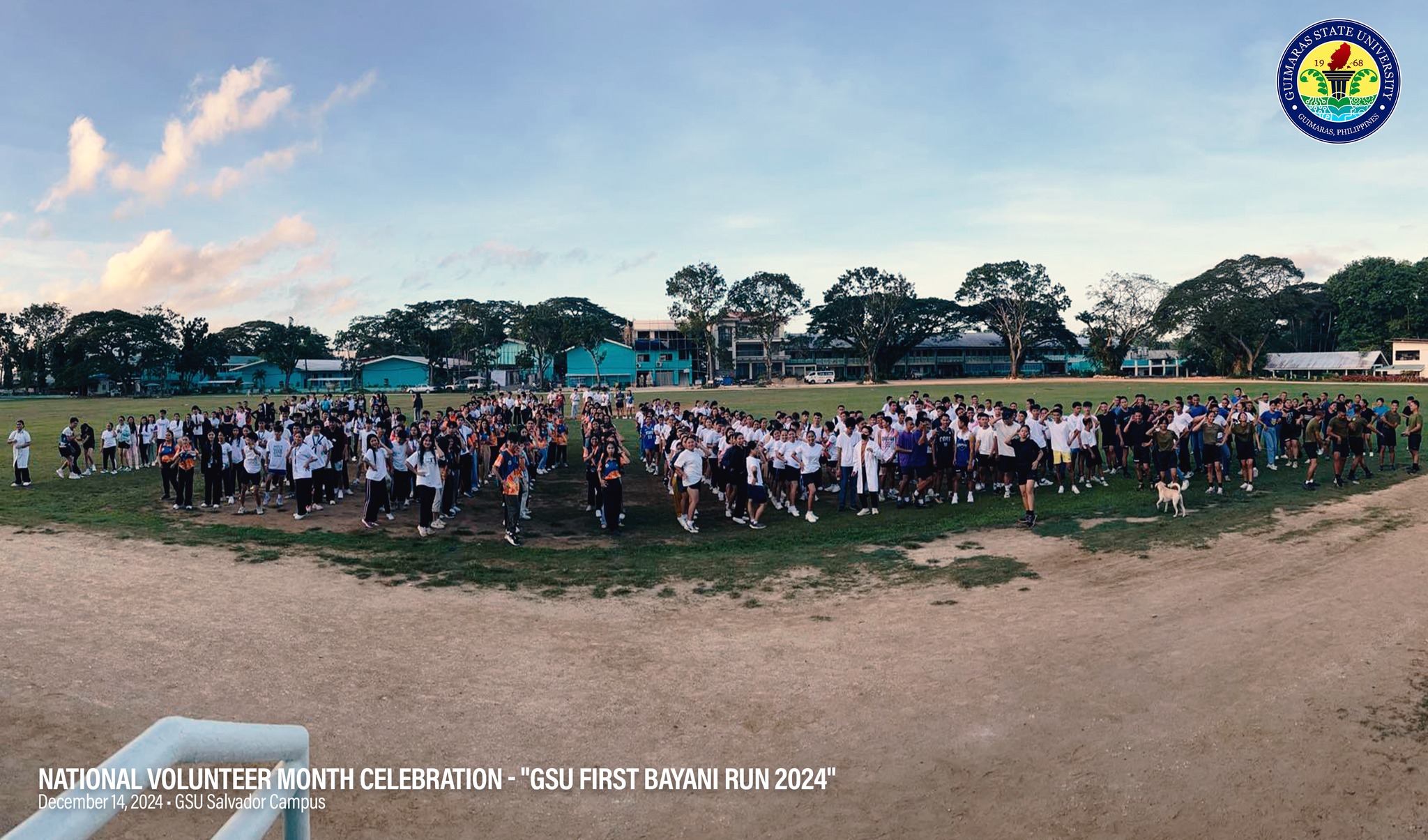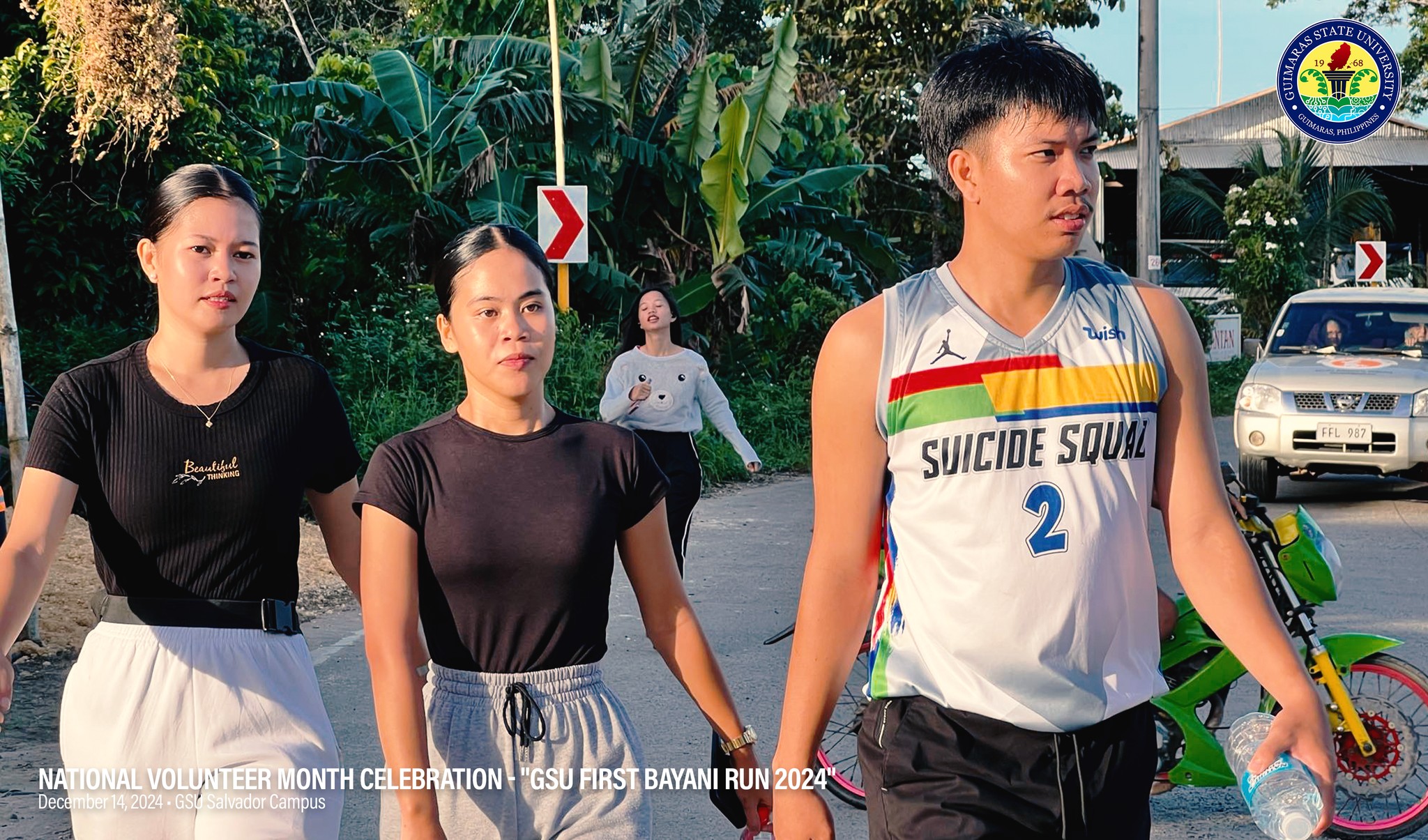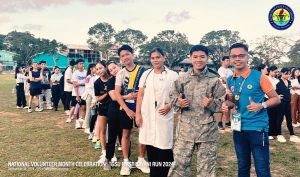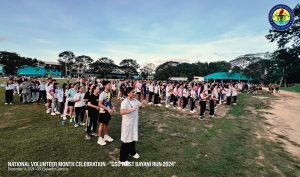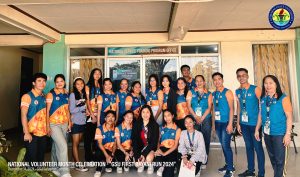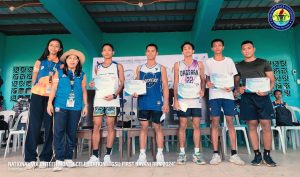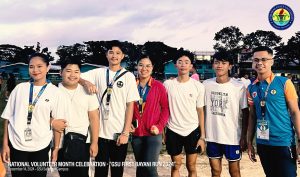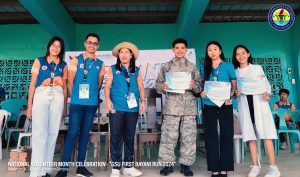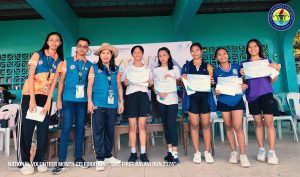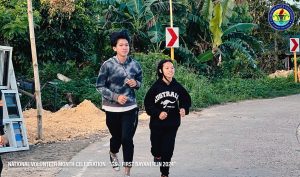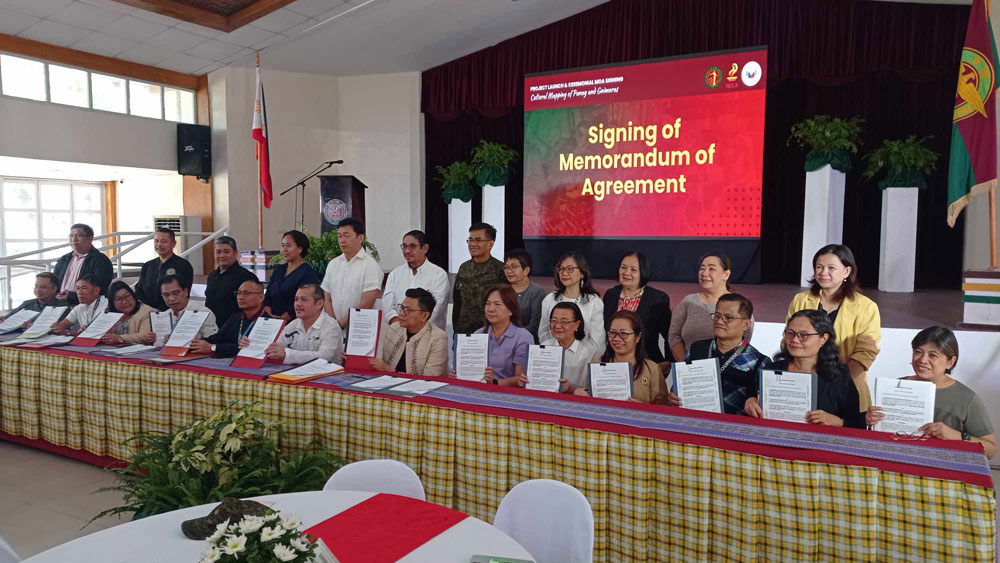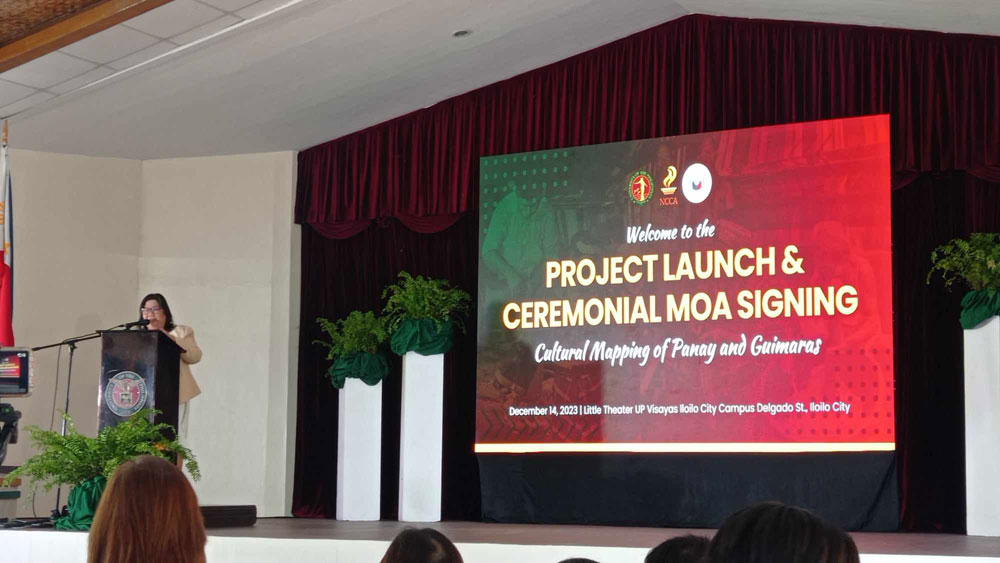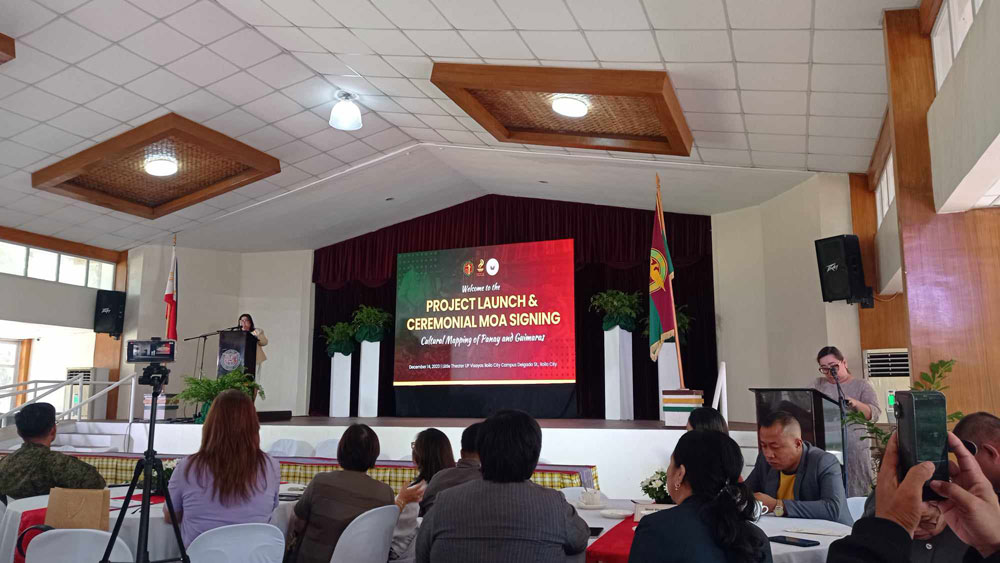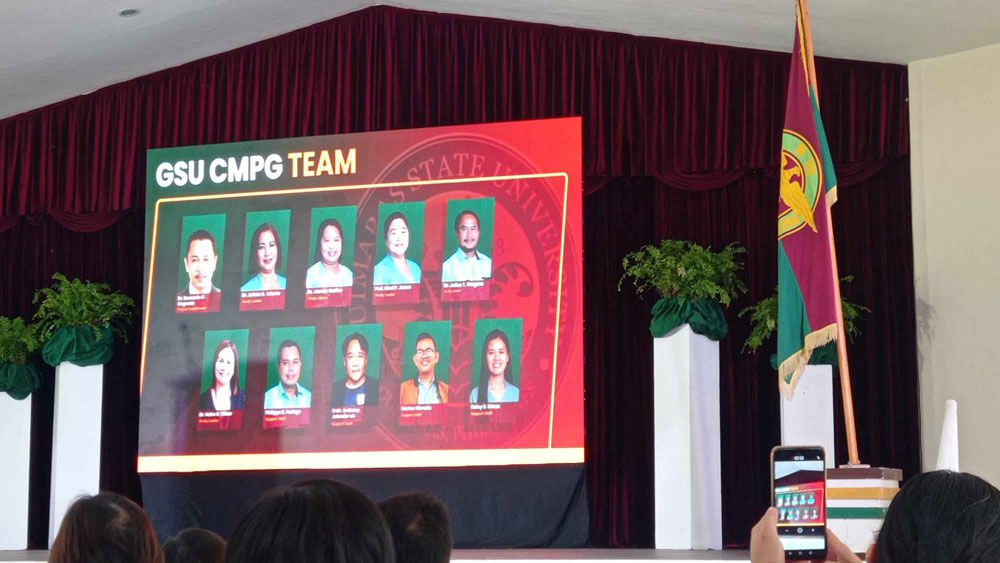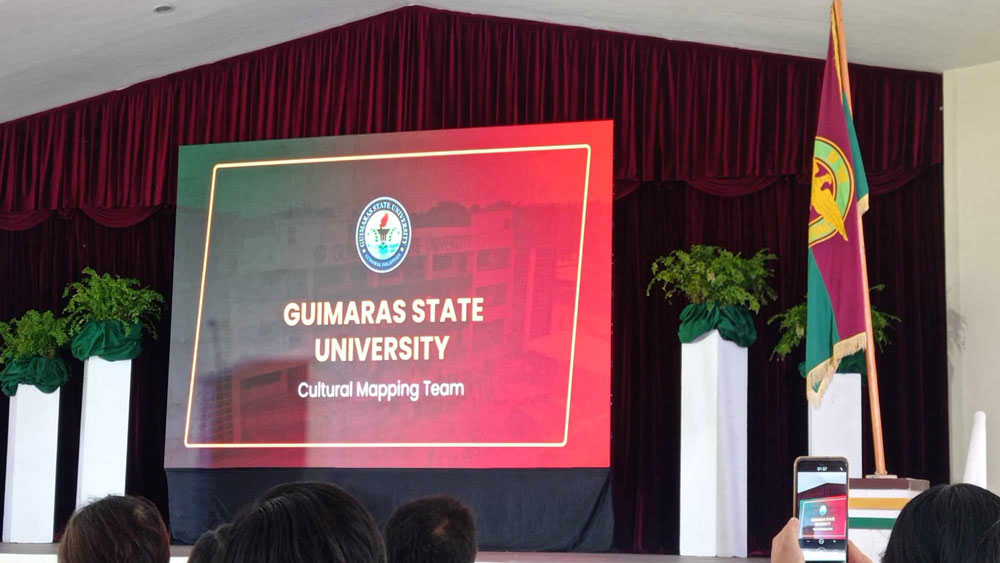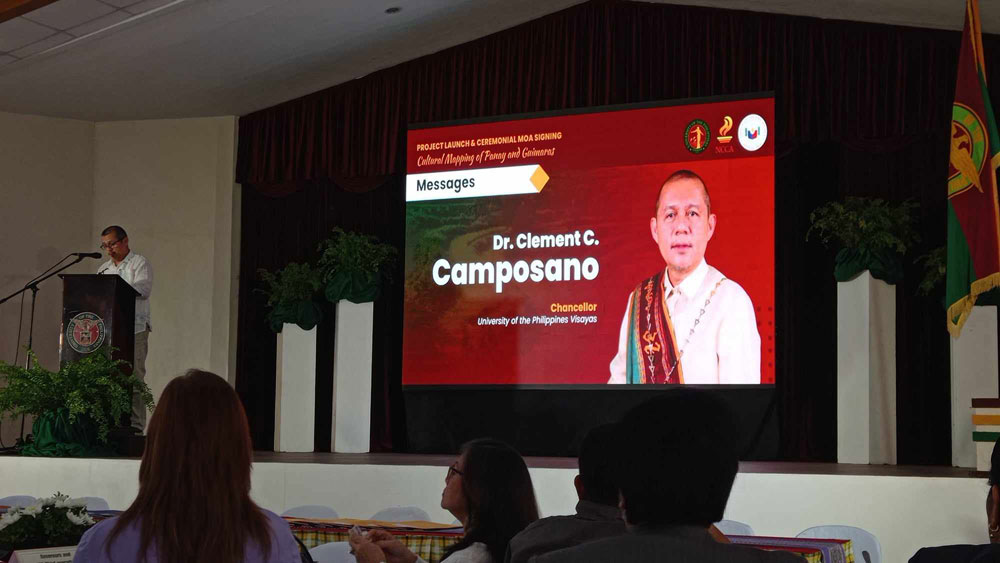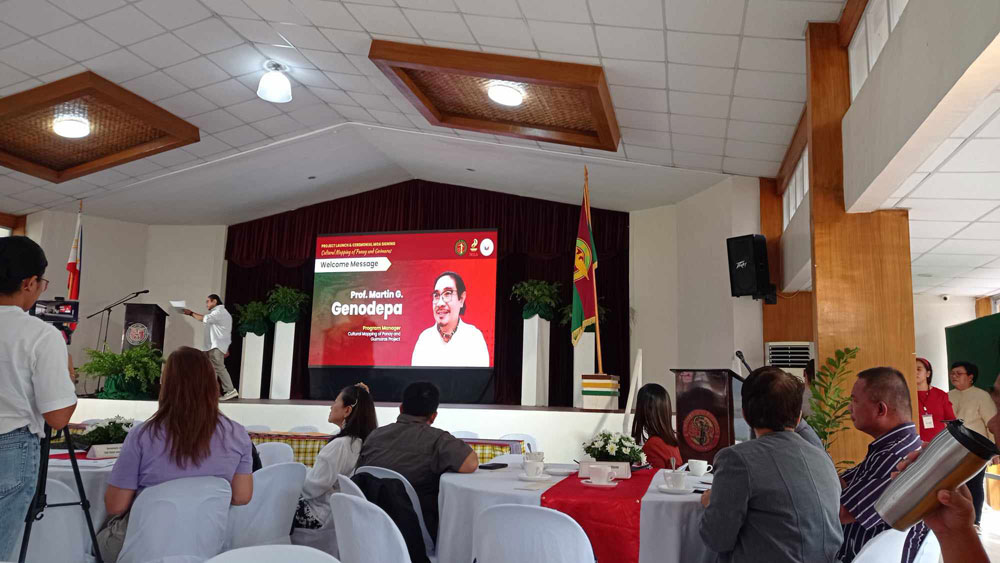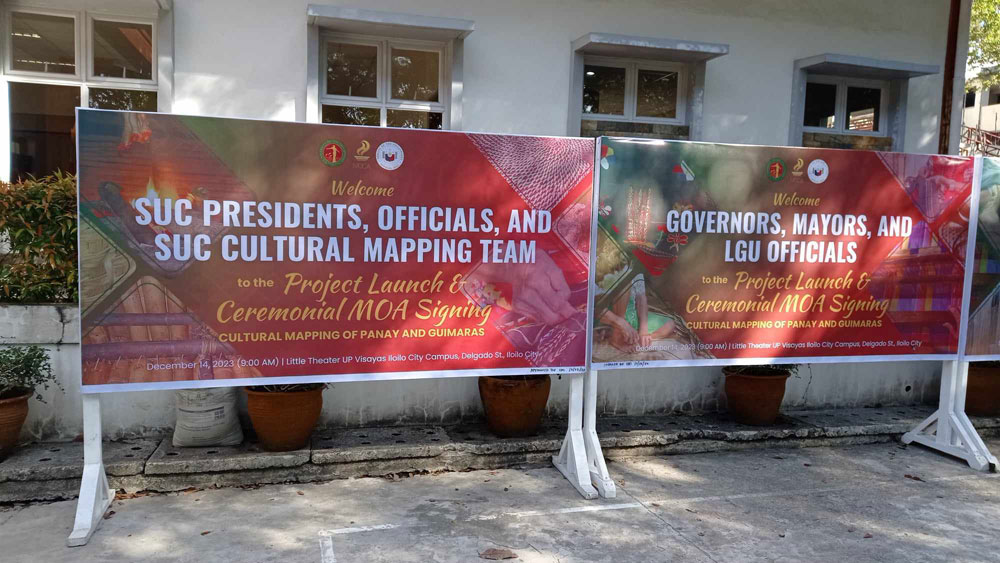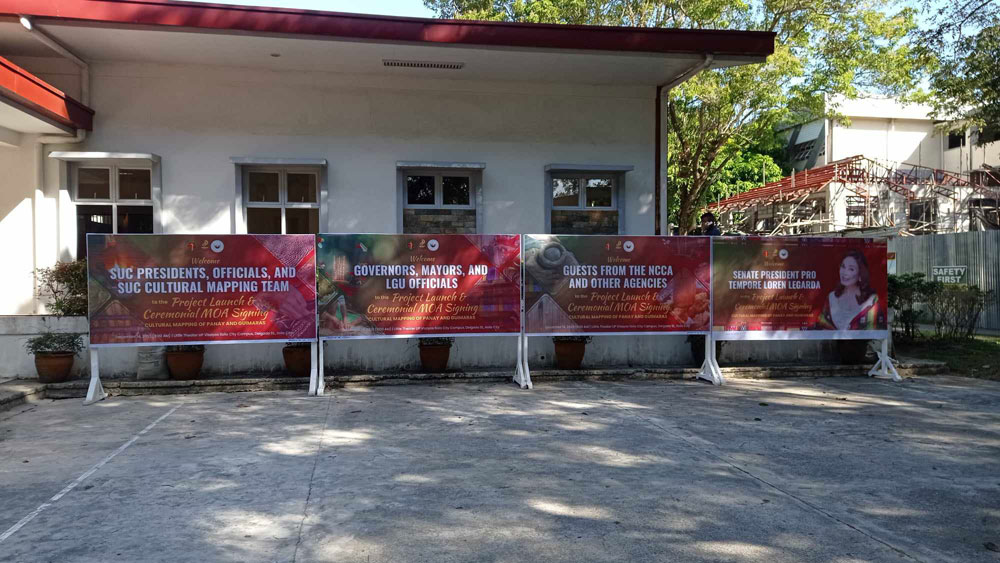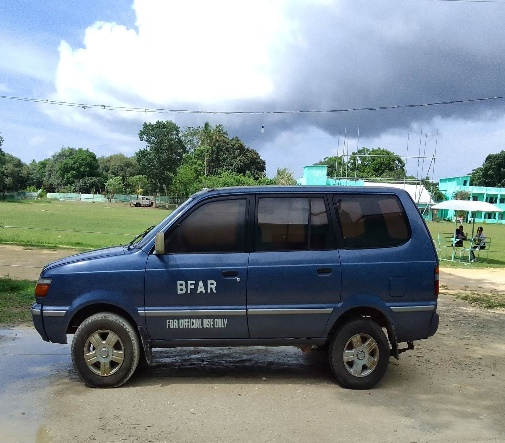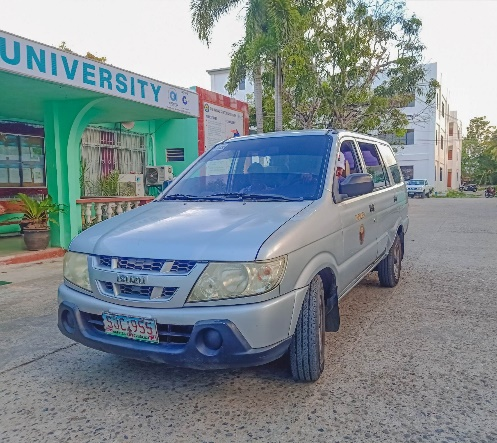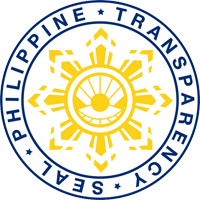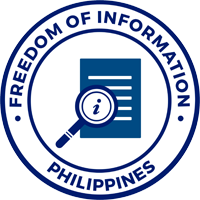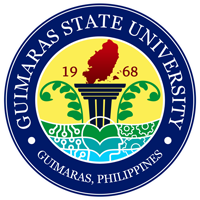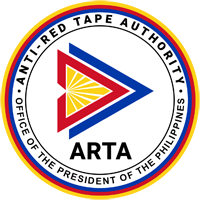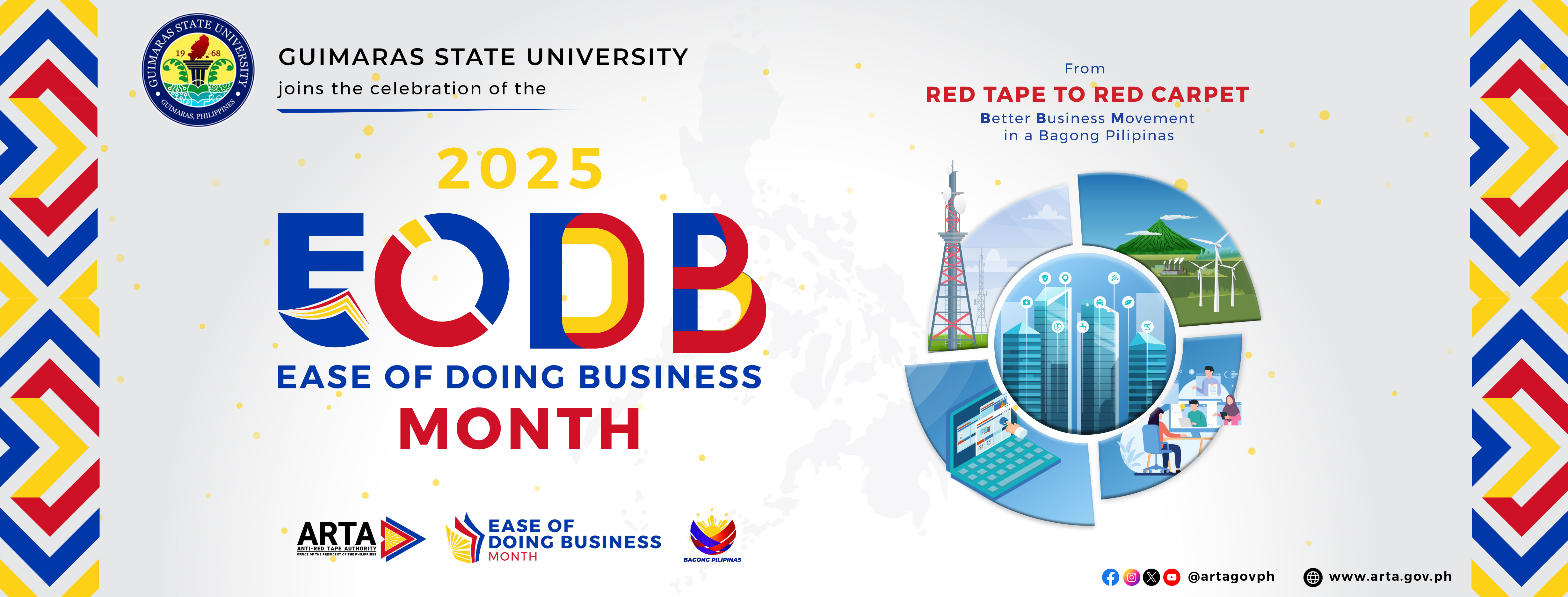December 15, 2023, Guimaras – In a landmark event held on December 14, 2023,
Guimaras State University (GSU) proudly joined the Project Launch and Ceremonial
Memorandum of Agreement (MOA) Signing for Cultural Mapping Panay-Guimaras. The
initiative, aimed at preserving and promoting the rich cultural heritage of the region,
saw the collaboration of various State Universities and Colleges (SUCs), officials, and
cultural mapping teams.
The ceremony was graced by the representatives of Senate President Pro Tempore
Loren Legarda, Dr. Clement C. Camposano (Chancellor, UPV), and Anna Razel L.
Ramirez, the overall project leader. The presence of esteemed guests from the National
Commission for Culture and the Arts (NCCA) and other relevant agencies highlighted
the national significance of the cultural mapping endeavor.
Presiding over the launch, Prof. Martin G. Genodepa, Program Manager of Cultural
Mapping Panay-Guimaras (CMPG), emphasized the vital role this project plays in the
preservation of the Philippine cultural heritage. The collaborative effort involves State
Universities and Colleges, each contributing expertise to different domains under the
project.
Guimaras State University, under the leadership of University President Dr. Lilian Diana
B. Parreño, plays a pivotal role in the initiative. Dr. Bernardo G. Cagasan has been
appointed as the Project Coordinator, overseeing the university's involvement in this
cultural mapping endeavor.
The study will be conducted across five domains, each led by distinguished experts:
Natural Heritage: Dr. Julius T. Vergara
Tangible Movable Heritage: Dr. Julieta G. Infante
Tangible Immovable Heritage: Dr. Jasmin Gadian
Intangible Heritage: Prof. Ethel P. Junco
Cultural Institutions and Personages: Dr. Helen R. Vilbar
A team of dedicated support staff, including Instr. Anthony Jalando-on, Mr. Philippe R.
Prologo, and Instr. Daisy B. Ibieza, will work in tandem to ensure the success of the
project.
The Guimaras State University's involvement in the Cultural Mapping Panay-Guimaras
initiative underscores its commitment to cultural preservation, education, and
sustainable development. As the project unfolds, it is expected to yield invaluable
insights that will contribute to the enduring legacy of the region's cultural heritage.
The remarkable event was also attended by the project coordinators and staff from the
following partner SUCs:
1. Iloilo Science and Technology University for the Cultural Mapping of the 1st and 2nd
Districts of Iloilo
2. West Visayas State University for the Cultural Mapping of Iloilo City and Iloilo 3rd
District
3. Iloilo State University of Fisheries Science and Technology for the Cultural Mapping
of Iloilo 4th and 5th Districts of Iloilo
4. Capiz State University for the Cultural Mapping of Capiz Province
5. Aklan State University for the Cultural Mapping of Aklan Province
6. University of Antique for the Cultural Mapping of Antique Province
The project aligns with Republic Act 11961 which mandates the Local Government Units
to conduct cultural mapping activities. It aims to produce a registry of the cultural and
natural heritage of all the 103 municipalities or LGUs of Panay and Guimaras provinces.
A cultural mapping project in an island can have significant implications and benefits for
various aspects of the community and the island itself. Here are some key points
highlighting the significance of such a project:
Preservation of Cultural Heritage:
Cultural mapping helps identify, document, and preserve the island's unique cultural
heritage, including traditions, customs, rituals, languages, and historical sites. This
ensures that the island's rich cultural identity is not lost over time.
Community Empowerment:
Involving the local community in the cultural mapping process empowers them to
actively participate in preserving and promoting their cultural heritage. This
engagement fosters a sense of pride and ownership among community members.
Tourism and Economic Development:
A well-documented cultural map can attract tourists interested in experiencing and
learning about the island's unique culture. This, in turn, can stimulate economic
development through tourism-related activities, such as cultural events, guided tours,
and the sale of traditional crafts.
Environmental Conservation:
Cultural mapping often involves identifying and documenting the relationship between
the local culture and the natural environment. This understanding can contribute to
sustainable practices that balance cultural preservation with environmental
conservation.
Education and Awareness:
Cultural maps serve as valuable educational tools, providing resources for schools,
museums, and cultural institutions. They contribute to raising awareness about the
island's cultural diversity, history, and significance.
Cultural Exchange and Collaboration:
Cultural mapping facilitates collaboration and exchange between different communities,
fostering a broader understanding of diverse cultures. This can lead to cultural
exchanges, partnerships, and collaborative projects that enrich the overall cultural
landscape.
Urban Planning and Development:
Understanding the cultural assets of an island through mapping can inform urban
planning and development strategies. This ensures that future developments are
sensitive to and supportive of the existing cultural fabric of the community.
Policy Formulation:
Cultural mapping provides policymakers with valuable insights into the cultural needs
and priorities of the community. This information can guide the development of policies
that support the preservation and promotion of cultural heritage.
Social Cohesion:
By acknowledging and celebrating cultural diversity, cultural mapping can contribute to
social cohesion within the community. It helps bridge gaps between different cultural
groups and fosters a sense of unity and shared identity.
Resilience and Adaptation:
Cultural mapping can highlight traditional knowledge and practices that may be valuable
for the community's resilience and adaptation to environmental changes, thereby
contributing to sustainable development.
In summary, a cultural mapping project in an island is a comprehensive and holistic
approach that goes beyond just documenting cultural elements. It plays a crucial role in
shaping the island's future by integrating cultural preservation with sustainable
development and community well-being.
